A guide for first year PhD students: Expectations, responsibilities, advice
The first year of a PhD can feel like a rollercoaster ride. First-year PhD students are ambitious and want to fulfil expectations. At the same time, they may be unsure of what these expectations and their responsibilities are. This guide aims to provide first-year PhD students with some directions and advice.
Disclaimer: This post may contain affiliate links, which means I may earn a small commission if you make a purchase using the links below at no additional cost to you. I only recommend products or services that I truly believe can benefit my audience. As always, my opinions are my own.

The first year as a PhD student: Excitement, ambition, overwhelm
Many PhD students cannot wait to start. They already want to prepare in the weeks and months leading up to their new positions. And once they do start, they are full of energy, ambitions and plans.
Questions like these, and insecurities, often develop early on in a PhD journey.
What to expect as a first-year PhD student
Set realistic expectations for yourself in the first year of your PhD. Not everything will work out as planned. Research takes time, and setbacks are inevitable.
Doing a PhD is often experienced as very stressful : many PhD students are perfectionists, and a PhD requires a lot of self-responsibility. Consequently, PhD work tends to feel very personal, and criticism can sting.
Responsibilities of a first-year PhD student
Specific requirements and responsibilities of a first-year PhD student differ from programme to programme.
All in all, a first-year PhD student is responsible to get organised and create a feasible plan for the coming years. The first year is meant to set the foundation for the PhD trajectory .
Unless the PhD programme is followed online, and unless there is a pandemic raging, first-year PhD students are additionally often expected to actively participate in the research group, lab or department in which they are based.
A supervisor’s expectations of a first-year PhD student
Again, specific expectations or requirements in terms of performance and output of first-year PhD students can differ from university to university, and from supervisor to supervisor.
Many supervisors prefer first-year PhD students to ask for help and support if they experience roadblocks of any kind, instead of finding out that after a year no progress was made.
25 things every first year PhD student should do
Thesis/dissertation, academic skills, relationships and networking, health and well-being, master academia, get new content delivered directly to your inbox, deciding between a one- or a two-year master's degree, email signatures for phd students (content, tips and examples), related articles, key quotes to motivate and drive academic success, 10 reasons not to do a master’s degree, 10 signs of a bad phd supervisor, 3 sample recommendation letters for brilliant students.

The Savvy Scientist
Experiences of a London PhD student and beyond
My Advice and Tips for New PhD Students

I started my own PhD exactly six years ago this week and looking back there are LOADS of things I wish I’d known when I started! Previously I’ve written a whole post about my PhD regrets . In this post I want to focus on actionable advice and tips which I hope will help out any new first year PhD students.
Even if you’re already midway through your PhD I hope that you find some of the advice useful. Do you have a piece of PhD advice yourself? Feel free to share it with us in the comments section below.
1. Set Up Regular Meetings with Your Supervisor
One of the main things which really helped during my PhD was having regular one on one meetings. Not only do you get an opportunity to check things with your supervisor, they’re also a useful way to stay focussed and disciplined.
Rather than set up ad-hoc one on one meetings when you need them, I’d really push for a regular slot. I had a recurring weekly meeting, mostly just with my primary supervisor but sometimes my secondary supervisor came along too. Some people may find this is too frequent but in any case regular meetings are crucial.
Supervisors will be familiar with many challenges you’re likely to face. They can offer invaluable advice to not only solve the problem quickly but also offer perspective to put your mind at ease. It is almost impossible that you won’t have anything at all to discuss. In fact you are likely to end up receiving lots of other advice which you may not have been actively seeking near the start of your PhD, such as career guidance.
Some supervisors by default only have group meetings with their PhD students. Whilst they can be great for getting to know what everyone in the group does and for getting feedback, these really aren’t the place to raise a lot of issues to do with your PhD. For starters it isn’t an effective use of other students’ time to sit through you doing a deep dive into technical details. In addition, some topics are far better suited to a private meeting: mental health, a review of your progress etc.
For any prospective PhD students reading this, it’s a good idea to gauge how much support you can expect to receive from a supervisor ahead of time. If you’ve already recently started your project, now can be a great time to set yourself up with regular meetings.
2. Don’t Work Too Hard
When you’re new in the research group it is natural to not want to come across as a slacker to your colleagues and supervisor. However please don’t become that person who feels the need to hang around in the office just to be seen to be committed to the project.
A perk of a PhD is that they’re flexible: you should be able to control your own time and work when you want and take breaks when you want. Some people see this flexibility as merely theoretical and instead end up working really long hours. Please don’t!
Instead I suggest treating the PhD like a job (in a good way!). For me personally I found that working roughly 9-5 Monday to Friday was more than enough time to complete a PhD at a top tier university in less time than average. For more details, including my own calendar just over one year into the PhD, check out the separate post:
How much work is a PhD?
3. Work Smart and Learn to Take Breaks
Working in unison with the previous point about the number of hours you put in per week, a top tip for new PhD students is to learn to work smart and take breaks where necessary.
Repeat after me: don’t waste time being unproductive.
An effective PhD student shouldn’t need to chuck their entire life at the PhD. Instead, learn how you work best and use this knowledge to find a work pattern which boosts your productivity. Along with figuring out whether you prefer to start work earlier or later in the day, I personally found it useful to figure out how long I could sit at my desk before my productivity starting dropping. On the topic of working hours and productivity: no, PhDs don’t need caffeine .
Taking frequent breaks are great, not just for your productivity but also your sanity. By breaks I mean everything from a five minute walk through to a proper holiday away from work.
If you realise you’ve started procrastinating, take a break: reading a few pages of a fiction book or taking a short walk can do wonders for PhD motivation and your mental health. Breaks are particularly important for anyone starting to feel the potential effects of burnout. In fact it may be worth reading my whole post about PhD burnout .
PhD Burnout: Managing Energy, Stress, Anxiety & Your Mental Health
Beyond daily walks, take days off when you feel like you need them. While you no longer enjoy months off in a row like undergraduates, do be sure to take holidays too: yes PhDs should definitely take holiday. Here is how much annual leave I used up for holidays throughout my whole PhD .
4. Start Thinking About Publishing
Clearly you’re not going to be in a position to publish original research for quite some time (as first author at least), but your first year is often filled with a lot of reading. In addition to using this reading to help with your project direction, you could turn this into a writing exercise which can be useful for three key reasons:
- Boost your understanding of the topic. Writing things down in your own words will strengthen your comprehension.
- It can form the basis for the literature review in your thesis. Always useful! Also handy for any early stage milestones that your university has. Mine had a checkpoint at nine months where it can be pretty handy to demonstrate that you have some idea about your research field!
- A relatively easy and early publication: a review article. It’ll really help give you confidence in the publishing process.
One of the best research groups I collaborated with during my PhD had an initiative where all first year PhD students should try to publish a review article. I think this is a great idea and wish I’d considered it myself so consider publishing a review article a top tip for new PhD students!
Before I tried submitting my own first original research article , which wasn’t until over two years into the PhD, I found the whole publishing process quite overwhelming and intimidating. Had I dipped my toes in early with a review article I’d have realised it wasn’t as complicated as I suspected (as with most unknowns) and instead probably tried to submit my own research much sooner. I’ve since written an entire series of guides about publishing your own paper, check it out here:
Writing an academic journal paper
5. Get Some Good Habits Started
There’s no better time to get some good habits established than when you’re just getting started with your PhD.
Have a think about what kind of habits you’d like to have by the end of your first year as a PhD student and start putting plans in place to work towards them.
Good habits may include:
- Using a calendar so as to not be late to meetings or lab bookings
- Reflecting on times that you procrastinate and instead pushing yourself to take proper breaks
- Healthy and low-cost eating habits . Nothing is more important than your health, and what you eat is a key part of keeping yourself healthy. At least in the UK it can get really expensive really quickly if you buy prepared food (cafes, restaurants, takeaways) for all of your meals. Instead, I strongly suggest starting to cook for yourself. It is much cheaper and usually more healthy. I wrote a series of posts about cooking during a PhD, check them all out here:
Save money as a student: cook delicious & nutritious meals on a budget!
- Getting a good amount of sleep. I won’t prescribe how much sleep to get or when your bed time should be (I’m not your parent!) but just know that getting into a regular sleeping pattern to stay fully rested will do wonders during your PhD. I already mentioned how caffeine consumption is not a prerequisite for those of working in research and sleeping enough so that you don’t feel tired is a good starting point.
- Doing regular exercise . Try to make it something that you enjoy so that you stick with it. Want to be uber efficient? Combine it with your commute: I cycled to work during my PhD . Bonus points for any exercise which is sociable.
6. Get Involved
As interesting as your research may be, your PhD shouldn’t all be about working on your own in the lab. Take the opportunities presented to you. Such as:
- Collaborations. Working with other people can be much more fun than working on your own and could lead to some interesting developments for your own project.
- Presenting at meetings and conferences. It is a great experience. Scared of presenting? Even more reason to get started.
- Side projects. Got another idea you want to try? Give it a go!
- Make connections. I don’t want to bore you with networking spiel, instead I’ll just say that making connections (or hopefully friends!) with lots of people around your department, university or elsewhere can really enrich your PhD experience.
- Learn new skills. Not just “boring” lab stuff like analytical techniques, think about anything else in life you’ve always wanted to try. For instance you can join student sports clubs and societies like any other students at university. I tried scuba diving and gliding during my PhD and I’m so pleased that I got involved. Read my whole post here about opportunities during your PhD:
How to make the most of opportunities
7. Enjoy It!
There is no doubting that a PhD can be tough at times but do try to enjoy it and remind yourself how lucky you are!
As a PhD student you’re in an enormously privileged position. You’re getting paid to be a student, which in itself is pretty great but on top of that you get to become an expert in a topic you find interesting. It is pretty amazing really. My final tip for new PhD students is to savour the PhD experience. The years will fly by before you know it, so make sure to take a breath once in a while to appreciate where you’ve got to and where you’re going.
A Quick Summary of Tips for New PhD Students
- Set up regular meetings with your supervisor(s)
- Don’t work too hard
- Work smart and take breaks
- Start thinking about publishing
- Get some good habits going
- Get involved
- Most importantly: enjoy it!
Good luck to all you PhD students, new and old. Hopefully these tips for new PhD students help give you some ideas to make your PhD a more pleasant experience. Do you have any other ideas for tips to help out PhD students? Let me know.
Subscribe for access to my free content library here:
Share this:
- Click to share on Facebook (Opens in new window)
- Click to share on LinkedIn (Opens in new window)
- Click to share on Twitter (Opens in new window)
- Click to share on Reddit (Opens in new window)
Related Posts

Minor Corrections: How To Make Them and Succeed With Your PhD Thesis
2nd June 2024 2nd June 2024

How to Master Data Management in Research
25th April 2024 27th April 2024

Thesis Title: Examples and Suggestions from a PhD Grad
23rd February 2024 23rd February 2024
Leave a Reply Cancel reply
Your email address will not be published. Required fields are marked *
Notify me of follow-up comments by email.
This site uses Akismet to reduce spam. Learn how your comment data is processed .
Privacy Overview
Educational resources and simple solutions for your research journey

PhD Student Life: 11 Strategies to Put Your Career on the Growth Track

The PhD student life can be both exciting and challenging. A typical day in a PhD student’s life includes attending classes and seminars, conducting research experiments or field surveys, and writing thesis papers. You also need to meet tight deadlines, keep up with the latest literature in your field, and align with your supervisor’s demands. And the PhD student life is not just limited to academic work; there are various extracurricular activities, such as attending conferences, networking events, and more social meetings with colleagues.
The PhD student life can be very demanding, and it can be easy to feel overwhelmed. However, it’s important to remember that this is a temporary phase, and your hard work and dedication will eventually pay off in the end. Moreover, the transferrable PhD skills and life lessons you learn during your PhD student life will only help you flourish in the future.

Table of Contents
Strategies to fast-track your career growth
The PhD student life comes with multiple challenges but also unlocks exciting prospects where one can learn, share, collaborate, network, and grow. With a strategic plan, proactive approach, and an open mindset, PhD students can take advantage of available opportunities, including elusive PhD funding opportunities, and achieve their goals. Here are some tips to help PhD students put their career on the fast track.
- Set clear goals and plan well: Before starting your PhD program, take some time to reflect on your career aspirations and what you hope to achieve with your degree. Once you have a clear idea of your goals, create a plan to achieve them – include both short-term and long-term goals, as well as specific steps you can take to achieve this.
- Find the right mentors/supervisors: To streamline your PhD student life, it is crucial to find good mentors and advisors, preferably with experience in your field. Actively seek feedback on your work assignments and use this to improve your research and professional skills. These seasoned experts can also help you tackle academic and professional challenges, provide networking options, and advise on career options after PhD .
- Expand your knowledge of research: PhD student life is a journey of learning, so don’t forget to expand your research knowledge and skills. It may be beneficial to adopt a more inter-disciplinary approach, gaining knowledge and new perspectives on not only your own subject area but even in related fields of research. This may seem excessive but can be helpful when you work on broader academic projects or teach graduate or undergraduate courses.
- Collaborate with other researchers: The PhD student life gives you the chance to work with other scholars, who are as passionate about their work and have similar goals and aspirations. A collaborative approach will help you expand your research skills and knowledge, gain access to new data sources, and increase the impact of your research. Apart from your PhD program, you can find potential collaborators at academic networking events, on social media, and through professional associations.
- Attend conferences and workshops: Look out for academic seminars, conferences, and workshops provided by your institution or external academic groups. There will likely be many such events during your PhD student life that provide you a platform to share your research, receive feedback, and learn about the latest research trends. They are also a great way to meet academics from different universities, industries, and backgrounds, so make these events a regular feature in your PhD calendar.
- Capitalize on career development resources: Most institutes offer professional development resources to students, including career-focused workshops, seminars, and one-on-one counselling. Take advantage of these career-building resources to learn about job opportunities in your field, create a compelling resume and cover letter, prep for job interviews, and increase your chances of landing your dream job.
- Develop transferable PhD skills: While conducting research is an important part of a PhD program, it’s also important to work on refining the transferable PhD skills that prove invaluable in the future. Join training sessions that help you build key research skills like writing grant proposals, managing and leading projects, delivering engaging research presentations, and communicating clearly, and look for opportunities to practice these throughout your PhD student life.
- Seek PhD funding opportunities: There are several PhD funding opportunities for students which can support their research work, journal publication fees, and even travel expenses for events. It is important to know of and actively seek PhD funding opportunities from different reliable sources, including government grants, academic foundations, private organizations, and crowdfunding. However, before you apply for a grant, read the guidelines on use of funds and application instructions carefully and tailor your proposal accordingly to get the best funding for PhD students.
- Publish your research in journals: The best way to kick-start your academic success is publishing your research in reputed journals. Choose high-impact journals in your field and follow the submission guidelines carefully to maximize publication success. Getting started on your publication list during your PhD student life helps you gain early visibility in your field and gives you a leg up when applying for academic jobs.
- Apply for teaching assignments: As you near the end of your PhD student life, look out for and consider taking up a short teaching assignment in your department or university. Many institutions provide accreditations or certificates to academics who undertake these assignments, which can be a huge advantage for PhD students who want to earn good academic positions after getting their doctoral degrees.
- Explore non-academic career paths: When looking for jobs after PhD, explore non-academic positions that can open-up a range of rewarding options that does justice to all the work you put into your PhD student life. Many industry jobs require people with a rigorous research background and good writing and speaking/communication skills, which makes PhD students far more employable. You can also consider internships and part-time work opportunities that align with your research interests and skills. And if you are seriously thinking of a career change, sign up for additional professional training and career counselling services to ensure you make the right choice.
The PhD student life inculcates an ability to think differently, gives you the chance to work with a diverse set of people from various backgrounds, and equips you with the tools you need for success. While dedication and hard work can help you make a positive impact with your work, students must be proactive in identifying and grabbing the many opportunities available during the PhD student life. By following the simple strategies mentioned above you can set yourself up for success and move closer toward achieving your career goals.
Related Posts

How R Discovery is Transforming Research Reading Habits for Academics in Brazil

Article Processing Charges: Impact on Open Access Publishing
- Home »
- Advice »
- Studying For A PhD
find your perfect postgrad program Search our Database of 30,000 Courses
Phd preparation top tips, tip #1 practice your organisational skills and time management.
To be a PhD student means to be your own boss, at least in terms of planning your own working hours and managing your research project. To be your own boss sounds great, but it can also be overwhelming unless you are prepared for the challenges it takes. You need to make sure you’re ready before your course starts by finding out what type of work schedule makes you most productive and able to stay inspired. In short you need to learn how to be your own boss and ensure you stay motivated!
TIP #2 Get your academic skills in shape
Top sportsmen need strong muscles to perform their chosen sport at the highest level, and PhD students need a strong brain for their studies. You can’t start a PhD without sending your brain to the gym first and getting it into shape! Reading books about your academic subject is like lifting weights, and the more you read the more prepared you will be!

If you have recently finished your graduate studies, it is highly likely that your academic skills are in good shape because you spent the previous year devouring numerous books and articles about your subject. In this case you are probably ready to begin your PhD – but don’t forget to do some reading during the summer break!
If you opted to take a gap year or have been working for a few years before starting your PhD, your academic fitness may be at a low level. If this instance we advise you to get back into shape while waiting for the beginning of your studies by taking a few hours each day to read academic texts relevant to your potential PhD topic. Staying mentally active is the secret to a long and happy academic life!
TIP #3 Create a Plan B
When it comes to PhD, Plan A doesn’t always work. Sometimes your research won’t go as planned, sometimes you will feel completely uninspired, and various other issues that you’ve never even thought of may arise for you to deal with. This means it is always a good idea to create a Plan B! Think about the possible issues that might arise during your PhD and work out how you could solve them.
TIP #4 Don’t forget to have fun

TIP #5 Learn how to work in a group and how to take criticism
As a PhD student, you will be a part of a small research group usually consisting of your supervisor and a few other students, which means you’ll need to learn how to work as a team. You will also be expected to give constructive criticisms as well as receive constructive criticism. If you’ve never experienced someone criticising your work before, you almost certainly will during your first PhD year. Thus you need to “desensitise” your ego and you can do this by undertaking short-term projects that will make you think from multiple perspectives and put you in the firing line for some criticism.
TIP #6 Read personal experiences of other PhD students
The best way to learn what it takes to be a successful PhD student and to prepare for the start of your course is to read personal experiences of other PhD students or to talk to your friends who have already experienced what it takes to do a PhD. This is especially important if you did your undergrad or masters degree in a different country and you don’t know what to expect when coming to the UK.
TIP #7 Follow what is happening inside your field
It wouldn’t make any sense to enter deep into a specialised field of study before finding out who’s who in your chosen area. Make sure you get to know who the most prominent researchers in your field are, what specific topics they are interested in, and which universities they work at. You may also wish to establish some contacts with these celebrated academics to give you a career boost should you ever decide to become an academic.
TIP #8 Practice self-motivation
If you were a graduate student or you had a “real job” for several years before starting the PhD, it is highly likely that you were constantly bombarded with specific projects to finish and that the feedback from your professors or your boss helped you remain inspired and set new challenges for yourself. However, during your PhD studies the external sources of inspiration will vanish, and you will need to master the art of inspiring yourself. You don’t need to be a genius to learn how to motivate yourself – it’s actually fairly simple. Before starting your PhD, try to constantly give yourself some short-term projects that require persistence and self-determination to get you into the swing of things. This will make you ready to aim even higher when your PhD course starts.
TIP #9 Focus on long term goals instead of short-term pleasures

TIP #10: Work on your language skills.
Last but not least, if you are a foreign student it is important that your English is on a high enough level before you begin your studies. Of course, in order to get accepted to your program you have probably passed the TOEFL or IELTS language tests. But don’t fool yourself! Passing these exams doesn’t necessarily mean that your academic English is at a high enough level to guarantee your success in your PhD . Most universities offer language courses for the upcoming PhD students before the start of the academic year, and that is one of the best ways to improve your English. Another useful thing to do is to surf the internet for various writing tips, and you can also contact university writing centres for more information or advice.
Related articles
Dos and Don'ts of a PhD Interview
Are You Ready For A PhD?
How To Get The Most From Your PhD Supervisor
Common PhD Myths
Alphabet of PhD Study
Top Tips for Surviving a PhD
Things To Ask When Looking For A PhD
Best Things About Doing a PhD
Pros And Cons Of Getting A PhD
To PhD Or Not To PhD
The Dos And Don'ts Of A PhD Interview

Exclusive bursaries Open day alerts Funding advice Application tips Latest PG news
Sign up now!

Take 2 minutes to sign up to PGS student services and reap the benefits…
- The chance to apply for one of our 5 PGS Bursaries worth £2,000 each
- Fantastic scholarship updates
- Latest PG news sent directly to you.
- Communications
- Computer Science
- Criminal Justice
- Environmental Management
- Forensic Psychology
- Healthcare Admin
- Human Resources
- Project Management
- Social work
- Special Education
- Sports Management
- Supply Chain Management
- Adult Education
- Business Intelligence
- Early Childhood Education
- Educational Technology
- Homeland Security
- Information Systems Security
- Information Technology
- International Business
- Management Information Systems
- Nonprofit Management
- School Counseling
- Academic Publishing Guide
- Building a Graduate School Resume or CV
- Choosing Between a Thesis or Non-thesis Master's Degree
- Expert Guide to Studying Abroad
- FAQ: Online Master's Degrees
- Grad School Guide Book
- Graduate School for Students with Disabilities
- Green Graduate Degrees
- How to Be a Successful Grad Student
- How to Choose the Right Graduate Program
- How to Get a Master's Degree in an Unrelated Field
- How to Transfer College Credits in Grad School
- How to Write a Winning Personal Statement
- Inside Graduate Admissions
- Ivy League Grad Schools
- Master's Degrees for Veterans
- Master's Degree for Women
- Mental Health in Grad School
- Progressive LGBTQ Graduate Degrees
- Should You Apply for a Graduate School Assistantship?
- Surviving Grad School with a Family
- Taking a Gap Year Before Grad School
- Women in STEM Graduate Resources
- Writing a Successful Statement of Purpose
- Alternative Ways to Pay for School
- The Best Part-Time Jobs During Grad School
- Company Funded Graduate School
- FAFSA For Grad Students
- Financial Aid Resources
- Graduate Student Loans
- Paying for Your Master's Degree
- Paying Off Student Loans
- Paying for Your PhD
- Fellowship Opportunities
- LGBTQ Scholarships
- MBA Scholarships
- Scholarship Resources
- Scholarships for Veterans
- Scholarships for Women
- Crushing the GRE Guidebook
- GMAT Guidebook
- Guide to the LSAT
- MCAT Prep for Medical School
- Study Guide: Exam Resources
- TOEFL Prep for Non-Native English Speakers
- Resources 15 Tips on Surviving Your PhD Program
15 Tips on Surviving Your PhD Program
15 tips and advice on making it through a phd.
It can be extremely challenging to complete a PhD program while maintaining physical and emotional health. The Chronicle of Higher Education reports that 50 percent of all doctoral students drop out of graduate school without completing their degree. Some schools report a 90 percent attrition rate. Common reasons for dropping out include academic shortcomings, students who change their career path, or those who lose interest in their pursuit. Some students have the ability to complete their degree but opt not to. One cause is the discovery of a poor job market for professors or private organizations in their fields. The Chronicle reports that math and science students leave in their third year. Some 25 percent of dropouts in Arts and Humanities occur after three years, potentially leaving candidates with high student debt and despair. This guide offers examples of concrete, accessible, and practical actions that can alleviate many problems that overwhelm doctoral students.
15 Tips on Surviving Your PhD
There is a legion of experts that offer advice on making it through the years of your PhD program. Many agree on the necessities of maintaining a balance of academic pursuits against routine personal outside activities that foster physical and emotional health. Here are 15 suggestions:
1. Establish a routine you can follow.
It’s crucial to stay on track. Your best option to do so and keep peace of mind is to create a schedule that you can follow – and commit to following it. Get up and do your work on schedule, just as you’d report for a job. Devote segments of your routine for research and reading pertinent literature in your field. Add time in your schedule to include sound sleep, good nutrition, exercise, socializing and recreation. Remember you’ll have other obligations such as attending lectures, symposia, commuting, parking, cleaning your living space, shopping for supplies, meeting with study groups and peer collaborators. At the same time, build a realistic schedule so you won’t work yourself into fear frenzy.
2. Start writing from day one.
Your writing practice and research methodology can put you ahead of schedule on your dissertation. That’s because learning to write comfortably in a scholarly fashion should become a second nature. To eliminate last-minute furies, organize your research times, round up and cite sources properly, and create a number of drafts. Writing at least 30 minutes daily can allow you to consolidate your notes and findings, and note discovery of areas that require additional research. Plus, much of what you write goes directly toward your understanding of your subject matter. Because of your other commitments to teaching, collaboration, and outside activities, keep a writing routine and stick to it. At the same time, read smarter, understanding how the literature fits to your purposes. In reading and writing, look for key points, not bulk.
3. Create a positive community.
Decide from the begging that you can’t afford to collaborate or socialize with friends or peers that exude negativity. Braggards or chronic complainers can sap your energy or even cause you to adopt negative thinking or comparisons with the progress of other PhD candidates. Lead your own research, but seek advisement from people that you can trust, who have your best interests at heart. Join groups involved in your major field of study with which you can share academic as well as social issues. A positive community can bring you out of isolation, and isolation can foster fear or despair.
4. Build effective networks.
Along with creating a positive community, get on with networking from the very beginning of your program. You’re going to spend four or five years at the university, giving you ample time to forge and grow partnerships with working professionals, educators, junior faculty, and peers that contribute to your evolving knowledge base. They can offer suggestions to explorer literature, research trends, and potential opportunities for publications, conferences, and workshops. Remember to investigate online tools and communities as part of your networking as a way to make yourself known as a colleague. Create your professional/research profile at places like LinkedIn or join a LinkedIn Discussion Group. Speak with presenters at seminars. Connect with authors you discover in your literature research and participate in career groups outside your usual sphere at the university. Finally, consider taking informational interviews as a means of understanding the workplace, getting your name out there, and connecting with potential employers.
5. Put money woes to rest.
Having ample money to get you through your program can be difficult, even excruciating. But just knowing solid funding resources can give you some comfort and save precious time. Have a financial plan and do the legwork vital to your economic survival. Don’t let finances overwhelm your primary purpose of discovering your interests, focusing on your expertise, and making progress. Financial aid options for doctoral students are available at the U.S. Department of Education . You may need to combine several opportunities to cover your total expenses, including grants, scholarships, loans, fellowships, housing costs, and securing teaching and research assistantships. Some grad students make money tutoring but you’ll have to consider the time against your routine and academic schedule. GoGrad provides detailed PhD cost estimates broken down by professional field, along with scholarship/grant/fellowship search tools.
6. Make sound nutrition your ally.
Rutgers University advises students to find other ways to palliate stress than by overeating – even healthy foods. Eat lots of fruit and vegetables and all your meals at the right portion sizes. Cut out junk food and sugary treats that create the craving to keep eating them. That goes for alcohol, too, which can contribute to a decline in your health and create another source of worry. Student and faculty events often include drinking, so proceed wisely, even if peers call you a wimp. Vary your meals and include a free day for eating what you want without guilt. WebMd suggests that students include berries, oats, milk or yogurt, salmon, dark green veggies, walnuts, beans, and dark chocolate. Coffee is okay in small doses (8 oz) and without lots of sugar. Latte and mocha drinks are satisfying but often contain large amounts of sugar. Green tea can wake you up, if you don’t want to overdo coffee, but eschew energy drinks or other stimulants that make you jittery.
7. Add exercise to your routine.
Exercise, even moderate, can do wonders for both your physical and emotional wellbeing. Among its benefits, regular exercise fights stress, improves memory retention, and boosts your mood (particularly in winter). Researchers at Colorado Tech report that exercise increases “the number of brain cells in the hippocampus, which controls the formation, retention and recall of memories – all essential for student success. In most adults, the hippocampus starts to shrink in the late twenties, leading to memory loss over time.” Exercise can also add to your social bandwidth if you have regular workout partners or participate in intramural team activities. Remember to stretch. Consider taking a yoga class or Pilates workout. Do some running, weight lifting, swimming, or join a rowing group. Hike with friends or colleagues. Get out the mountain bike. For best results, get in a 30-minute workout at least three times a week. Time Magazine reports that cardiovascular exercise can positively affect depression, anxiety and mood disorders. And you’ll sleep better, too.
8. Learn how to deal with rejection.
Rejection in an PhD program is a routine, unwanted emotional downer. But how you react to it is crucial. Unsolicited advice can feel abusive. Competition for internships, fellowships and publications can stress you out to the point of collapse. Coping tools include not taking rejection or undue criticism personally and chalking it up to experience. It can soften the blows as they come. Comparing yourself to other candidates can be toxic. As with athletics, there will always be someone better than you. But you’re not pursuing your colleagues’ goals, dissertations, or even the identical degree – you’re pursuing personalized knowledge and skills for your life after the doctorate. Barbara Robson, an Associate Editor for two academic journals, writes in Quora that most papers (80 percent or more) are rejected and that there’s an element of luck in getting published. If your paper is rejected by a journal, find another suitable place to submit it. If you’re passed over for a conference, don’t sent a hate letter or academic rebuttal. Move on.
9. Choose a qualified graduate advisor and mentor.
Finding the right mentor and dissertation advisor is pivotal to your academic success and survival. The Gradhacker Blog at Inside Higher Ed suggests that you choose an advisor that shares your research interests and career path. Ask about their success rate in graduating students that they mentor. Check out whether they walk the walk by viewing their list of publications, conference presentations, and other research accomplishments. Find out if they’re available for ongoing advising. Explore their aptitude as a mentor and the personal chemistry toward working together. Are they hard to communicate with, abusive or condescending? Are they unable to otherwise maintain a productive and respectful relationship during the time you’ll be in the program? Not all accomplished professors make for good advisors. Some may be too wrapped up in publishing or attending conferences to meet with you. You should leave advising sessions feeling more focused, energetic about your research and dissertation, and armed with strategies for accomplishment.
10. Build in time for family and friends.
There’s an old joke where a friend asks if you can hang out and you say, “I’m in a PhD program so ask me again in five years.” It’s vital to maintain relationships with family and friends. They can sustain you and keep you from deadly isolation. At the same time, they can be distracting. It’s useful to maintain balance by scheduling time with family and friends while sticking to the need to bear down on research and writing. The PhDStudent Forum says when possible to combine family or friend events around studying. For example, take study time for yourself during a longer visit to family to keep your academic momentum. Visit a coffeehouse where you can study along with family and friends that also like reading in public. Be sure to communicate clearly about your schedule and find ways to book in indispensable phone calls and visits. Join friends for exercise or recreation.
11. Set aside time to pursue non-academic interests.
Yeah right, when is that supposed to happen? It happens when you make it happen. To maintain a sane equilibrium, devote some time to routinely indulge in things you like doing. For example, work in the garden, take a massage class, learn photography, play live music, go kayaking, join a cooking class, volunteer in civic or advocacy activities or learn a foreign language. Build something with your hands. Play scrabble. Paint to indulge your playful or creative side. Take a dance class. Learn meditation or improve your ping pong game. Because it can be near impossible to turn off your PhD brain, relegate it to background noise. That way you might have breakthroughs or discoveries that emerge when you return to work.
12. Arrange and maintain a peaceful learning environment.
Living alone may create a peaceful learning atmosphere, but not if you have noisy neighbors above, next door, or below you. Yet you can develop a horrible sense of cabin fever if you isolate at home. Wherever you reside should be comfortable and workable. Clutter can be a source of stress. According to Inside Higher Ed , living with roommates can save on expenses, but comes along with its own set of challenges. Roommates can have other routines and schedules that introduce unwanted noise, emotional drama, unwanted guests, or social habits that can send you off the edge. Research potential housemates carefully, allowing a back-up plan for dealing with inevitable problems. Developing a friendly but direct communication strategy can help. Or, you can create a work zone in your bedroom that lends for privacy. If necessary, you can find a quiet study environment in a library carrel or small café. The same suggestions apply if you’re living with family.
13. Address your emotional health.
According to Inside Higher Ed , there is a mental health crisis in graduate education. Grad students are six times more susceptible to anxiety and depression than in the general population. The study found that “transgender and gender-nonconforming graduate students, along with women, were significantly more likely to experience anxiety and depression” than their straight or male counterparts. A poor work-life balance can be a powerful contributor to burnout and depression. The worst thing you can do when you experience mental health issues is to keep them to yourself or feel like a failure for having them. Seek out the campus counseling center (student health center) or a trusted outside mental health organization for personal counselling. Join their emotional support groups. The National Grad Crisis Line (877 472-3457) provides free intervention services, confidential telephone counseling, suicide prevention assistance, and referral services. Look into NAMI on Campus Clubs which are student-run mental health support organizations.
14. Deal with expectations
Who you are, ultimately, is not a PhD student. Your grad program is what you’re currently pursuing. The Indiana University guide to thriving in graduate school suggests that you shrink overwhelming expectations into bite-size challenges. It’s normal for doctoral students to think that they’re an imposter among experts. Johns Hopkins University found that striving to meet your expectations can cause low self-esteem, procrastination, guilt and depression. You may find yourself unable to meet your expectations for perfectionism, so modify your plans to hit deadlines with your best effort. The guide further advises to straighten out the expectations that others may have for you. This can be especially true with families and people who provide financial or emotional support.
15. Make conferences a part of life.
Opportunities to attend conferences and presentations are richly rewarding. First, you become part of the greater community in your research niche and you can build a lifetime network of colleagues. You can also gain a greater understanding of the professional options available to you. Even attending conferences out of your niche area can stimulate ideas and send you home refreshed. Participating in panels is a great way to network and demonstrate your expertise. Attending job fairs is another way to network while exploring the professional environment. By networking at conferences, you can set up additional meetings with experts by phone, virtually, or before the next conference. It doesn’t hurt to cite conferences and your own presentations on your CV.
From the Expert

What are PhD students afraid to talk about?
The number one thing that PhD students are afraid to talk about is the lack of progress that they are making on their PhD dissertation. This was certainly true in my case and also in the case of many of my classmates whom I spoke with. The dissertation is such a big project with different stages in it and requires such self-discipline over a sustained period of time. When I got past my embarrassment about it and started speaking to others about it helped a lot and I found a way forward.
Another thing that PhD students are afraid to discuss is their ambivalence about being in a doctoral program and whether they've done the right thing and whether they should continue. These are all important questions that such students need to be aware of and speak to others (counsellor, friends, etc.) about.
What was your greatest challenge and how did you succeed?
As mentioned, my greatest challenge in relation to completing my PhD was getting through the dissertation process. Two things really helped me get over the line (and came from speaking to friends and classmates). (1) Since my dissertation was quantitative, I hired a statistics advisor that I met with on a regular (weekly or fortnightly) basis and this helped me make good progress in that it served to provide much needed structure (and assistance with statistical analysis). (2) I fired my dissertation chair and found a new one that I had a much better working relationship with. My new chair was more knowledgeable about my dissertation subject area and also he was much more supportive. I made significant progress with him and thereafter completed my dissertation in a relatively short time frame.
What are good ways to alleviate stress and anxiety?
There are a number of ways that I think will help with stress while working on one's phd. The usual suspects are approaches such as regular exercise, good diet, fun activities (e.g. movies), counselling and/or talking to friends and/or family.
However, I think the best approach that one can take is to get steadily work through each aspect one-by-one of the PhD program towards completing it. A useful way to think about it (with both the dissertation and the PhD program itself), is to not get overwhelmed by the size of this enormous project but instead cut it up into separate pieces and focus on each piece at a time, complete it, and then move on to the next piece.
How did you handle the challenges of extreme competition?
My tip for students who are experiencing high levels of competition is to try put it all into perspective: Do your best to get the finest resources (internships, grades, etc) that you can but know that once you're out in the profession, some of those things might really matter that much in the bigger picture. So, one can be just a 'pass' in your doctoral program but then get out into their profession and make a big splash.
What can you recommend to keep interest or inertia up so you’ll finish the PhD/Dissertation?
‘Cut up the sausage' and focus on/work on it a piece at a time; Locate assistance or supportive individuals and meet with them regularly and ongoing throughout; Create 'deadlines' and milestones for yourself to work towards and have these other (helpful) individuals assist in keeping you accountable.
Find ways that work for you that help to bring structure into this enormous unstructured (or scantily structured) project called a PhD -- and especially its dissertation. At the end of the day, it's really about just getting through it and into the next (and bigger) stage of your profession. Just do your best while you're in it and don't get too caught up in the moment.
Additional Resources & Help for PhD Students
You should realize that you can’t do everything on your own. To do so is a recipe for financial despair, insurmountable academic challenges and poor overall wellbeing. At the same time, you may need to sift through the wealth of outside resources to find the one that addresses your concerns. The following links will connect you with financial options, bulletin boards in your field, and academic resources. Find tips for time management, exam preparation, and help with emotional issues that can and will arise:
- GoGrad Guide to Paying for Your PhD : Students are currently paying upwards of $80,00 in tuition to complete their PhD. Use our guide to research your financial aid options.
- PhinisheD : This free, comprehensive bulletin board is devoted to PhD students struggling with completing their degree. Find links for reference guides, financial aid, health and well-being tips, and writing guides.
- National Grad Crisis Line : It’s for when the going gets rough. The National Grad Crisis Line at (877) 472-3457 was founded in 1988 to provide free mentoring, confidential counseling, and referral services.
- Centers for Disease Control and Prevention : The CDC offers a pithy, wide-ranging college resource for maintaining wellness through sound nutrition and exercise. It offers diet plans, activity guidelines, and stress-prevention tips.
- U.S. Department of Education : Learn about financial aid for graduate or professional students including grants, loans and scholarships. The page links to government sites for applications and additional financial resources.
- ThoughtCo : This site is packed with articles on graduate school written by experts. Topics include prepping for comprehensive exams, time-management skills, and dealing with procrastination.
- Meetup : Student Meetups provide free, online listings for students to connect PhD candidates seeking peer support. Join an existing group or start one at your university.
- GoGrad : Discover tips for PhD students who want to complete their degrees online. Featured affordable online doctoral fields include business, computer science, criminal justice, education, nursing and psychology.
- The Grad Café : As host of graduate-school forums, the Grad Café operates a peer-run group that discusses the advantages and negative aspects of living alone or sharing housing.
- PhDJobs : Register for free and post your VC. Search among 1,600 current listings for PhDs and sign up for job alerts or information about post-doc programs.
101 Health and Wellness Tips for College Students Rutgers University
12 Tips for Surviving and Thriving in Grad School PsychCentral
CAPS Grad School Survival Guide Indiana University
Mental Health Crisis for Grad Students Inside Higher Ed
Modest Advice for New Graduate Students Medium.com
Surviving PhD and Postdoctoral Programs: Tips to Guarantee Success! Enago Academy
The Crucial Issue of Doctoral Non-completion The Chronical of Higher Education
Top 10 Smart Foods for College Students WebMD
A Happy PhD
A blog about doctoral productivity, supervision and wellbeing..
Looking for tips, tricks and advice to finish your doctoral thesis on time and with high spirits? Baffled by how little information is out there about how to support PhD students to become independent researchers? As an ex-doctoral student now co-supervising five students , I feel your pain.
“A Happy PhD” is a blog where I distil what has worked for me, as well as recent research in doctoral education, psychology and many other fields. Join our newsletter , or follow the blog on Twitter , Facebook , or via RSS .
New to the blog? Start here.
Are you looking for…
Common problems and challenges in doing the PhD, from mental health (e.g., depression or anxiety) or productivity challenges , to writing or dropping out of your PhD .
Mental health and wellbeing tips and advice : common mental health symptoms in the PhD , tips to avoid dropping out of the doctorate , the importance of sleep , holidays or advice from positive psychology to keep yourself motivated during the PhD.
PhD productivity tips and advice : from the classic Pomodoro technique , to avoiding to-do list overwhelm , dealing with multiple projects and priorities , staying productive and motivated , how I manage my daily tasks or how I do my weekly reviews .
PhD-specific tools , like the CQOCE diagram to conceptualize your PhD, the NABC method to structure your research presentations, or the process I use to write scientific papers or make big career decisions .
Supervision tips and advice , about giving feedback on student papers , or supporting a sense of progress in your doctoral students .
What (else) do I write about?
Recent posts.

Two Hundred Weeks: Productivity for Mortal PhD Students (book extract)
Is there a way to be productive in our PhD without falling into all-out work obsession and burnout? What habits and systems could help us make good use of our (inherently limited) time and effort, taking into account that we could die tomorrow? In this second part of our Four Thousand Weeks book summary, we look at some of the tactical and strategic advice stemming from the productivity mindset shifts the book suggests – filtered and contextualized for doctoral students aware of their finitude.

Productivity as Avoidance, or How *Not* to Think about Doctoral Productivity (book extract)
If you are a doctoral student struggling to move your dissertation forward, especially in the face of additional jobs, teaching, family, or other obligations, the thought of becoming more productive can be very appealing – to the point of becoming a sort of obsession. After our review of (somewhat caricaturesque) doctoral productivity and anti-productivity arguments , in this post I summarize some of the ideas in Oliver Burkeman’s recent book, Four thousand weeks , which I have found very helpful to reach a balance between my own productivity obsessions and the abandoning of all hope of being any good at my daily research activities.

Is Doctoral Productivity Bad?
In this blog I have written a lot about doctoral productivity tools and advice. Yet, many doctoral students out there may also think that the focus on productivity is exploitative, dehumanizing, and counter to the very spirit of the scientific endeavor. Should we reject the quest for being productive altogether? Should we “quiet quit” our PhDs? This post tries to clarify what I mean by (doctoral) productivity, which may not be the “narrow productivity” view you find in certain research policy or journalistic articles about the topic. That way, you can decide whether it makes sense for you to follow my advice, or get it elsewhere.

Tiny idea: To-do lists are menus
Overwhelmed by your endless to-do list? Stressed because of the many PhD-related tasks you need to “go through”? As we discussed previously in the blog , you are not alone (and ask any already-doctors whether this feeling goes away after graduation). Lately, as I struggle with not-so-new-parenthood-unproductivity in my own research, I have been reminded several times of a mental reframe I first encountered in productivity writer Oliver Burkeman ’s work. This simple metaphor helped me change my relationship with my to-do list, without hurting my productivity (more probably, the opposite).

Tiny practice: Beating procrastination with The Right Now List
One of the top barriers to PhD productivity is procrastination. Have you ever found yourself with a big ugly task getting stale in your to-do list, repeatedly postponed because it is too big, too abstract, or makes you somehow uncomfortable? This tiny practice post gives you an simple trick to beat this sort of procrastination.

ChatGPT's doctoral productivity advice... and four ideas the algorithm will (probably) not give you
We know that making progress is a critical motivational factor in finishing a PhD and maintaining good mental health while we do it. In turn, our productivity plays a big role in whether we make progress on our dissertation or not. As the first post in a series on doctoral productivity, I could not help but fall into one of the thèmes du jour : whether ChatGPT and similar artificial intelligence (AI) tools can write a good piece about this topic. In this post, I go over a couple of iterations of (pretty good) computationally-generated advice, and finally give you a few ideas that I think are overlooked by the algorithm.
Tiny idea: Use the Regret Test for daily decision-making
Breathing through the phd: breathwork in the doctorate, tiny practice: boost your workday happiness with natural spaces, tiny idea: subtraction.
Advice for surviving your PhD dissertation
Tips for each step of researching, writing and refining a PhD dissertation
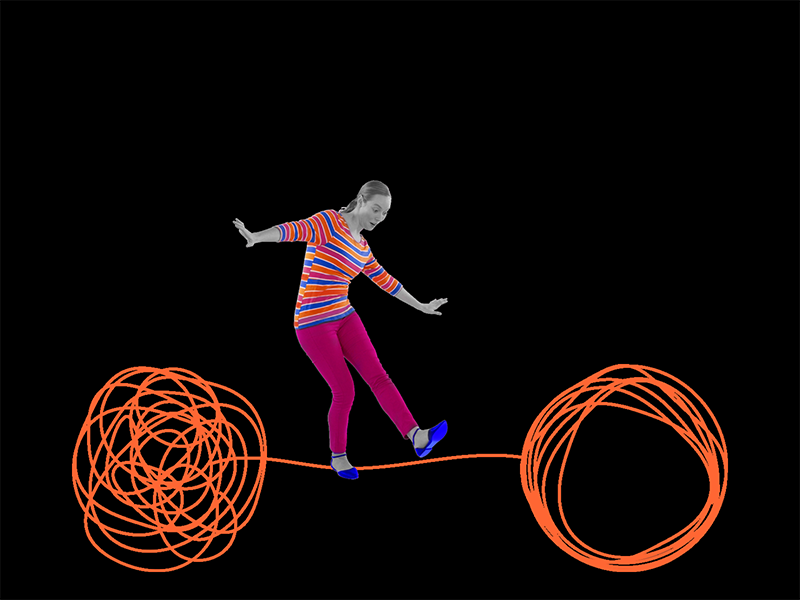
From initial research and writing to revision, defence and award, the journey to completing a PhD is often described as a marathon. Here, academics offer their insight on each step towards producing an original work of scholarship. Starting with choosing a supervisor and establishing healthy habits, the advice goes on to cover how to structure a PhD dissertation, establish a writing routine, write an abstract, prepare for a viva and beat procrastination when motivation flags.

.css-7qmtvr{overflow:hidden;max-height:108px;text-indent:0px;} Get a head start in the first year of your PhD
Andreï V. Kostyrka
University of Luxembourg
How to start writing your PhD thesis
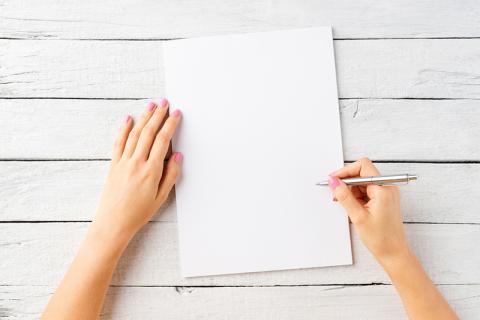
Strategies for writing a dissertation: write before you’re ‘ready’
Monique Dufour
Virginia Tech

How to navigate the PhD thesis
Luis R. Rojas-Solórzano
Nazarbayev University

How to write a PhD thesis: a step-by-step guide
Kelly Louise Preece
University of Exeter

One thesis, two supports, three months
Mariam Shadan
Dubai Medical College for Girls

How to tackle the PhD dissertation
Dalhousie University

Get your PhD thesis beach ready
John Sinclair
Colorado State University Global
Finding supervision and support

Top tips for choosing a PhD Supervisor
Near East University

Buddy system: creating community through writing
Lena Steveker, Laura Spadon
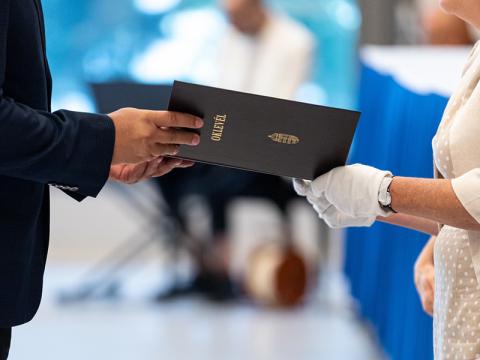
Individual consultations can help PhD students to complete their studies
Szabolcs Várbíró , Judit Réka Hetthéssy, Marianna Török
Semmelweis University

Transitioning to a PhD: common struggles and how to overcome them
Camille Bou
The London School of Economics and Political Science


Protect your emotional well-being for a happier writing experience
Burcu Totur Dikmen
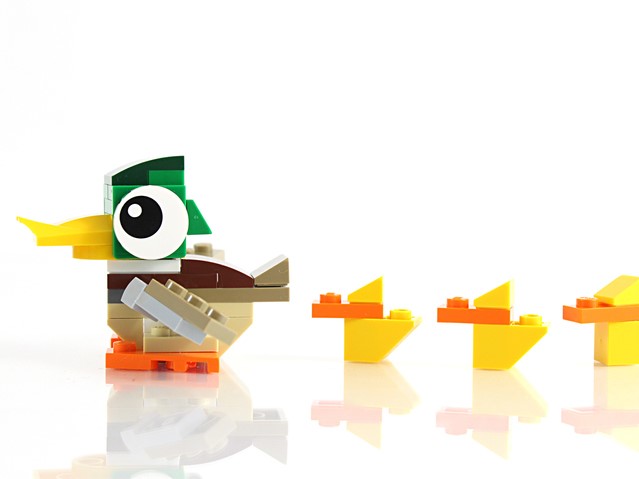
Why getting a PhD is like building a Lego duck
The University of Edinburgh
Advice for doing a PhD by publication

Why get a PhD by publication (and other career tips)
James Derounian
University of Bolton

Publication-based doctorate: is it for me?
Northumbria University

Advice for supervising a PhD by published works
Alison Brettle
University of Salford

How to write an abstract for a research paper
Ankitha Shetty
Manipal Academy of Higher Education

Read this before you write your abstract
Michael Willis
How to find motivation, keep going and finish your thesis

Five ways to beat the procrastination monster
Glenn Fosbraey
University of Winchester

Bad news, kids (and academics): the magical motivation fairy doesn’t exist
Hugh Kearns
Flinders University

What is your academic writing temperament?
Rachael Cayley
University of Toronto

How to develop a researcher mindset as a PhD student
Shaif Uddin Ahammed
University of the West of Scotland

Evidence synthesis: what every student (and researcher) should know
Alessio Bellato
University of Southampton
Preparing for the viva or defence of your PhD

‘Augmenting’ the doctoral thesis in preparation for a viva
Edward Mills

How to answer viva questions
Jenny Scoles

Tips for writing a PhD dissertation: FAQs answered
Campus team

The 9 most effective ways to achieve PhD success
Feb 26, 2020

Writing a PhD is physically, intellectually and emotionally daunting. You may spend each day doubting yourself, not sure if you’re making the right choices and unsure whether you’ve got what it takes. During my life, I’ve helped thousands of PhD students like you. I want to share with you the nine most effective ways of achieving PhD success.
They should give you some fresh insight into what it means to be a PhD student and what it takes to achieve PhD success. They will also make you think differently about the way you work. Some you may be familiar with, but others may be new. As with everything, keep an open mind and ask yourself whether a particular tip would be useful in the context of your own research and way of working.
1. Stop with the perfectionism
Your first drafts are probably going to be awful, and your final drafts will still have things that you could improve. In short, your thesis will never be perfect.
However, just because your PhD isn’t perfect, that doesn’t mean it’s a failure.
You may try and convince yourself otherwise, but a few mistakes here and there or a research design flaw or two aren’t the end of the world. If you’re a perfectionist like I am, you probably know the struggle of trying to make sure you’ve made everything as good as it possibly can be, often at great cost. You also know the panic that sets in when you realise you’ve made a mistake.
You’ll recognise how the importance of that mistake escalates. In your eyes, it isn’t just a mistake. It’s the end of the world. When you spot yourself falling into this trap, remind yourself that you’re only human, the person reading your thesis is human, and you’re not expected to execute everything perfectly all of the time.
I n short: give yourself a break.
2. Ask, ‘So what?’
I proofread a lot of PhDs and I coach a lot of PhD students. When I do, I find myself asking one question over and over again: ‘So what?’
When you are writing about, say, particular design decisions, or a specific theoretical concept, ask yourself ‘so what?’ That way, you go beyond merely discussing a particular phenomenon, method, or whatever, and instead tell the reader why such a discussion is important and why it is relevant in the context of your thesis.
That’s because, in your thesis, everything should be rooted in your research questions, research aims and research objectives. By asking ‘so what’ you are showing what those roots look like and, in doing so, being explicit about why a particular discussion is worth having and telling the reader why they should care you are having it.
For example, if you are talking about a particular method, by asking ‘so what’ you tell the reader why that method is appropriate given your questions/aims/objectives, what benefits or drawbacks it will bring, and how it will bolster your study. If you fail to ask ‘so what’, you’re just describing a method and the reader is left wondering – you guessed it – ‘so what?’
3. Be critical
Critical engagement with the literature is key when conducting a PhD. It isn’t just enough to summarise existing research, you need to pick holes in it and critique it. You need to say what’s good and bad about it, why it is relevant, what could be improved, and more. I’ve written an extensive guide on how to be critical in your literature review, so if this is something you struggle with, you should check it out.
Beyond this, you need to be critical of your own writing. When you read back through drafts of your text, you should ask the same questions of your words: what works, what doesn’t, what is relevant, what could be improved, and so on.
What separates draft chapters from passable, finished ones is the level of critical engagement. This has two implications. First, you won’t succeed unless you’re thinking and writing critically. Second, your first drafts won’t be as critical as they need to be and that’s fine. That’ll come as you revise the draft and you start to critically engage with your own writing.

Your PhD Thesis. On one page.
4. stay organised as you write.
Learn how to stay organised and productive. Your thesis is going to run into several hundred pages, so staying on top of its organisation and layout is key.
The easiest way to easily navigate through your text and to see what’s what is using the document map feature in Word. By effectively using the headings style pane, you can create a scrollable and clickable document map. It’s great for showing you the heading structure and allowing you to easily click your way through the text. For more info on how to create these, click here .
A bonus of using the headings pane to correctly label and format all your titles, headings and subheadings, is that you can create a table of contents with just one click of the button. This will be your best friend in the run-up to submission. For more info on how to create a table of contents, click here .
Another thing that you’re not going to have time to do before submission is manually compile your bibliography. For the love of all that’s holy, use referencing software. My preference is Zotero , because it’s free, simple to use, cloud-based and integrates with Word. It might take you a while to add all your references the first time you use it, but because you can then add the references in the text as you write, compiling your reference list is as easy as telling Zotero what referencing style you need and pressing one button.
5. Accept criticism
If there’s one thing that perfectionists can’t handle it is criticism. Ring a bell? It does for me.
Let me give you an example. I like to think that I’m a pretty great proofreader and PhD-coach . My feedback and reviews are, on the whole, glowing. But sometimes I get a bad one when someone isn’t happy.
Now, the rational part of my brain tells me that I tried my hardest and that one negative review out of hundreds isn’t the end of the world, however disappointing. The perfectionist side tells me that my business is doomed. The imposter syndrome kicks in. ‘They’ve found me out!’ it screams. I panic, think about that one review all day and give it far more space and energy that it deserves.
You may be the same when it comes to your PhD. Most of the PhD students I interact with tend to have perfectionist tendencies — some more than others.
When you get feedback on your work, or when you are at conferences or other public speaking events, you sometimes have the same response to negativity. It can feel like the end of the world, and it can feel like your entire PhD journey is in vain.
Sometimes this can be a good thing. Your worry and attention to detail can mean that you fix problems faster than most and that you’re more careful to avoid them in the first place. But it can also be detrimental. Much like me giving too much space and energy to that one review, you may find that negative feedback and critique can become more significant than it actually is.
Step one in overcoming this is recognising if and when it’s happening. Ask yourself if you’re putting too much focus on critique. Once you’ve begun to foster greater awareness, you can start to shift your perspective from one of ‘I’m doomed’ to one of ‘Okay, what can I learn from this?’
Above all though, recognise your humanity and give yourself a break. We all make mistakes.
6. Don’t marry your thesis
Most PhD students feel that to succeed, they need to marry their thesis. Recognise this? Do you feel like you have to devote your entire life to it, pushing away other things that are important for a balanced life (like, say, friends, partners or hobbies)?
Instead of marrying your thesis, treat it like a cruel mistress. See it as this part of your life that is doing its best to ruin you and to make your life as difficult as possible but that you can keep on the periphery as an addendum to an otherwise balanced, fulfilled life.
What does that mean in practice? It means showing up when you have to and letting it do its best to ruin you. But – and this is the crucial bit – it also means stepping away from it regularly, having clear PhD/life boundaries, not taking things too personally, and realising that your PhD is just one part of your life, not all of it.
7. Take some time off
We can kid ourselves and pretend every day is going to be a good one, or that we’re going to wake up with a spring in our step. But life (and your PhD) doesn’t work like that.
You’re going to have days where you feel rubbish, or you don’t want to get out of bed. You’ll wake up with no confidence, or crippled with self-doubt, left wondering what the point of it all is, or why you even started a PhD in the first place. It’s at times like this that you need to embrace the power of taking a day off.
If you teach, find cover. If you work in a lab, let your supervisor know you’re sick. If you have a chapter to finish, it’ll still be there when you come back.
Remember, just because you haven’t got physical symptoms doesn’t mean you don’t need some you-time, or to curl up on the sofa in front of the TV.
The benefits will be great. By recognising your low mood, recharging your batteries and taking time out to care for your own wellbeing you can avoid bigger problems in the long run and come back to your PhD the next day in a more positive frame of mind. The alternative is that you fight through, fail to recognise that part of being human is having off-days, and then create bigger problems as you find your performance lacking and your stress levels rising.
8. Recognise unfairness
Even when you do have off days, or when the world is conspiring against you, don’t fall into the trap of thinking that ‘life is unfair’.
If you ever find yourself saying those words to yourself, ask yourself whether you are doing so because you assume that life should be fair, or because you think it will be fair if only x, y or z changed.
The truth is that life is unfair. The same is true of your PhD. Things won’t go according to plan, good work will get overlooked, more competent people will get promoted, and you will be treated unfairly.
It’s not right, nor is it rational, but it’s reality.
If you go through your PhD program assuming that life is fair, you will be disappointed as you confront the environment around you. I don’t intend to be defeatist. Instead by shifting your assumption about the world and your program – and thus assuming that it is, in fact, unfair – you better prepare yourself for those instances in which things don’t go according to plan or you do get treated badly.
The alternative is kidding yourself that things should go right and then getting thrown off balance when they inevitably don’t.
Building up this resilience is key to deflecting a lot of the irrational, nonsensical behaviours and outcomes you encounter on your PhD journey. Without it, you’ll be disheartened.
9. Be mindful
I want you to imagine you’re holding a small red pillow. If I were to ask you to pick a pen up off the floor without dropping the pillow, you’d be able to do it. Sure, it’d be a bit cumbersome, but you’d manage.
Now imagine that I added one blue pillow on top of your red pillow. Picking that pen up is getting a bit more difficult now, isn’t it?
Gradually, I add one blue pillow after another. As I do, you start to disappear behind a tower of pillows. Picking that pen up without dropping the pillows is now impossible.
Now imagine that the red pillow represents a problem you’re having with your PhD. Perhaps it’s a problem with an experiment, or an issue you’re having planning a chapter. Whatever it is, it’s an objective issue you’re currently having.
Much like the pen and the red pillow, even though you’ve got that problem on your mind, you can still go about your day to day life largely unencumbered.
The blue pillows represent our brain’s capacity to worry, stress, ruminate, catastrophise and do all the other things it does to turn a small problem into a nightmare. Over time, you start to add blue pillows. You start to worry about whether you’re an imposter, or the perfectionist in you starts to convince you that you’re a failure. You start to worry about whether you’re going to complete the work or even why you bothered to start in the first place.
Much like with the blue pillows, as you add these problems one by one, you start to feel their weight and you can’t perform basic functions. You notice you’re crippled with stress, anxiety or worry.
But you have a choice. Sure, the problem – the red pillow – is real so you can’t really change that. However, you can change how you respond and you can choose not to add the blue pillows. Catch yourself when you’re adding those pillows and stop yourself doing it.
That’s the art of mindfulness. It’s the art of choosing how you respond to the world around you and it’s a great way to manage common PhD stresses and anxieties.
Practising mindfulness in this way sounds straightforward, but it’s an art and it takes practice. A good place to start is a guide I’ve recently published on The PhD Knowledge Base that talks about the science of mindfulness for PhD students.
Wrapping up
No advice is ever going to get away from the fact that doing a PhD is hard and that, to succeed, you need as much guts, resilience and fighting power as you do brains. But it is my hope that these nine tips for achieving PhD success will help you think differently about the journey you are on, and cause you to reflect on your own experience and your own way of doing things.
Keep your head down, be kind to yourself and put the hours in. You’ll get there in the end.
Hello, Doctor…
Sounds good, doesn’t it? Be able to call yourself Doctor sooner with our five-star rated How to Write A PhD email-course. Learn everything your supervisor should have taught you about planning and completing a PhD.
Now half price. Join hundreds of other students and become a better thesis writer, or your money back.
Share this:
Really solid advice and just what I needed to hear today! I am returning to my PhD after a 3 month break due to personal issues. I am planning to do things differently this time, take things in my own stride, and give up my lifelong habit of adding blue pillows to my load! Thanks 🙂
Great to hear it Hannah. Adding blue pillows is often inevitable. The skill is recognising when we’re doing it. Good luck!
Submit a Comment Cancel reply
Your email address will not be published. Required fields are marked *

Search The PhD Knowledge Base
Most popular articles from the phd knowlege base.
The PhD Knowledge Base Categories
- Your PhD and Covid
- Mastering your theory and literature review chapters
- How to structure and write every chapter of the PhD
- How to stay motivated and productive
- Techniques to improve your writing and fluency
- Advice on maintaining good mental health
- Resources designed for non-native English speakers
- PhD Writing Template
- Explore our back-catalogue of motivational advice

What should be a daily routine for PhD Students? Our proven checklist
PhD is the topmost academic honor , we write this line every time in our articles, only to make you understand how serious it is. To achieve the doctoral award, one has to develop some routine habits and self-discipline throughout the tenure.
This article is not the kind of all other articles on the internet which demonstrate some common things. Here is the standard daily routine process we advise our students to follow. This work, and will work for you.
Stay tuned with this content, it will certainly change your PhD journey.
The 7+8= 6 formula
Your daily planner, parkinson’s law , balance reading, writing and research , prepare goals for a day, check the goals for the day .
- Learn a single new thing every day
Do exercise
Check your computational work, and make a backup, an ideal daily routine for a phd student, wrapping up: , a daily routine for phd students: .
This one is our proven formula, trust me. Sleep for 7 hours, work for 8 hours, for all 6 days in a week. Rest is very important to reduce the burden and tension. Make sure you rest for at least 7 hours every day no matter how much workload you have.
Work for 8 hours, including your research, lectures and other academic activities. Do check your daily work amount, without failure. No matter what you do (related to your PhD), you have to work for 8 hours every single day.
This routine should be followed for six-day, and you can take a rest, party, read or walk around on Sunday. Follow the 7+8=6 formula and let me know your experience.
As a PhD student, you must have your daily planner on your PC or laptop or on your desk. The daily planner will show you your work picture for the entire month. If you don’t have one, download it from here.
Make a red circle when you fail to achieve a goal or daily progress. This will make you a better researcher. Plan, roughly your work for the month and try to achieve every single objective every day.
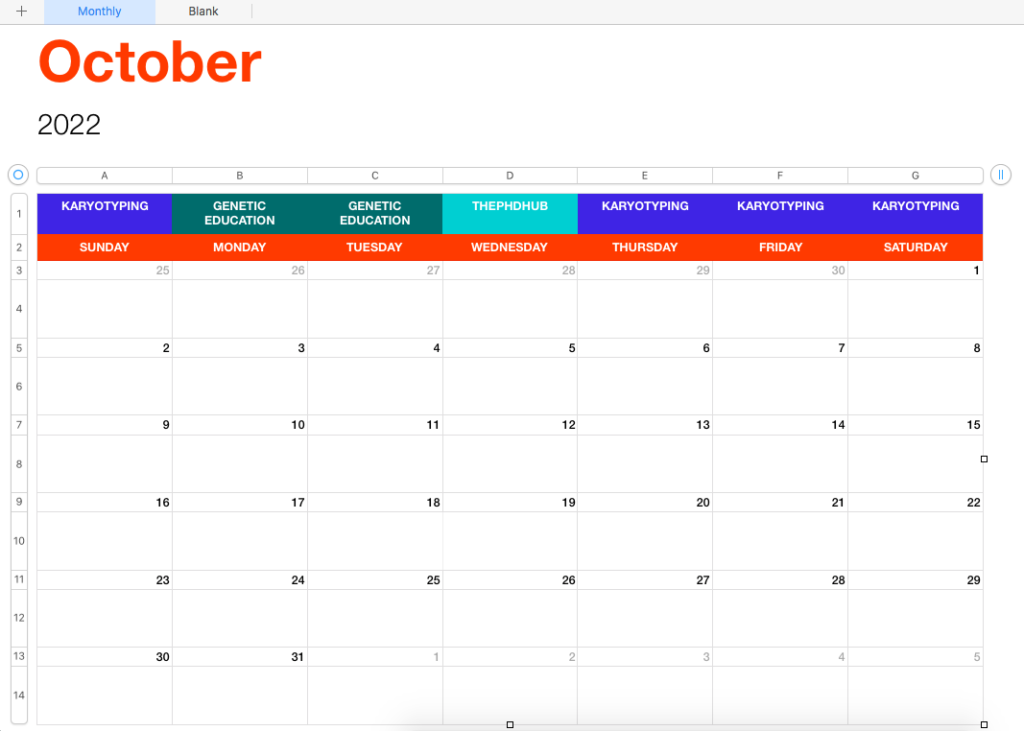
Here is the secret formula using which you can increase productivity and do more work in less time. Parkinson’s law says that work expands to the time allowed for it.
For example, if you give 5 hours to write an article, or paper or anything, you can write in 5 hours. You see your social media, and videos, and do other stuff and reach the goal. But if you give 2 hours for the same work, you can really achieve it in 2 hours.
Trust me, this is scientifically proven. Make a small goal and try to complete it in a shorter time period, put your mobile and all other activities aside and only focus on that particular piece of work.
Try it. You will love it. Remember it’s Parkinson’s law.
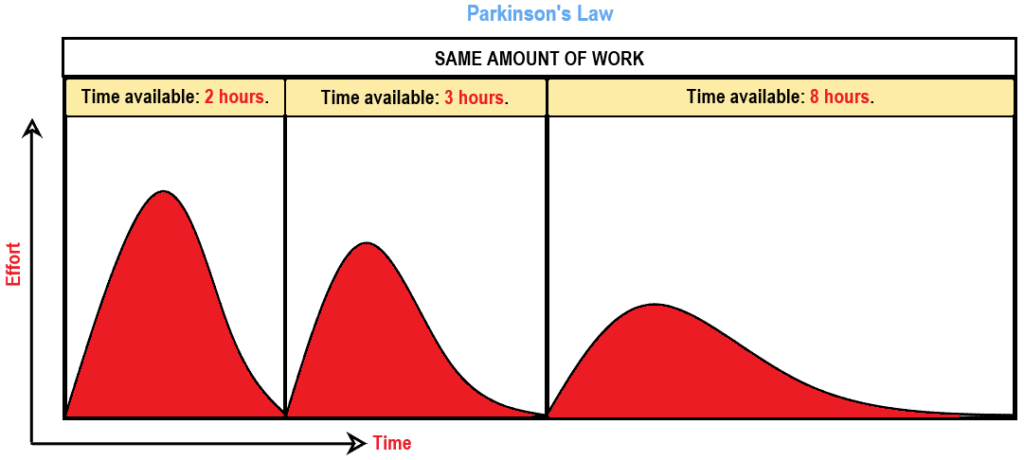
Students work only under pressure or when required. But let me tell you that you can gradually decrease your workload by managing your work from day one. Plan how much time you will give to read, write and research.
I know, at first, it looks unrealistic but it can be managed. Prepare a timetable, for example, 2 hours to search literature early before your college hours. Search sources, material or literature which possibly helps your that day’s research work.
- 2 hours- literature review
- College hours (3 to 4)- research and lab work
- 1 hour- enlist the results
- 2- read literature to correlate or justify your findings.
This should be your plan for a typical academic day. For example, let’s say today you would prepare some chemical solutions for your research. So before 2 hours of your work, read what chemicals are used, and what are their roles, quantity and variation that other scientists use.
After preparing solutions, check them, note results and search what others have found. Correlate it, and find problems so that you can work seamlessly for actual experiments.
This is something less recognized but so important. Wake up early, be prepared and enlist goals for the day. What would you do in the lab? Do remember Parkinson’s law and list more goals than the time allotted.
This routine will certainly help you to manage work and decrease your workload. In the long run, I bet you, you will be way ahead of your colleagues.
Now you have goals, planned how to execute them and worked. Go home and take a quick look at the goal book, and whether all goals are achieved, if you have achieved goals in time, before time or if some are left.
Also, note if some crucial goals are achieved in time or not.
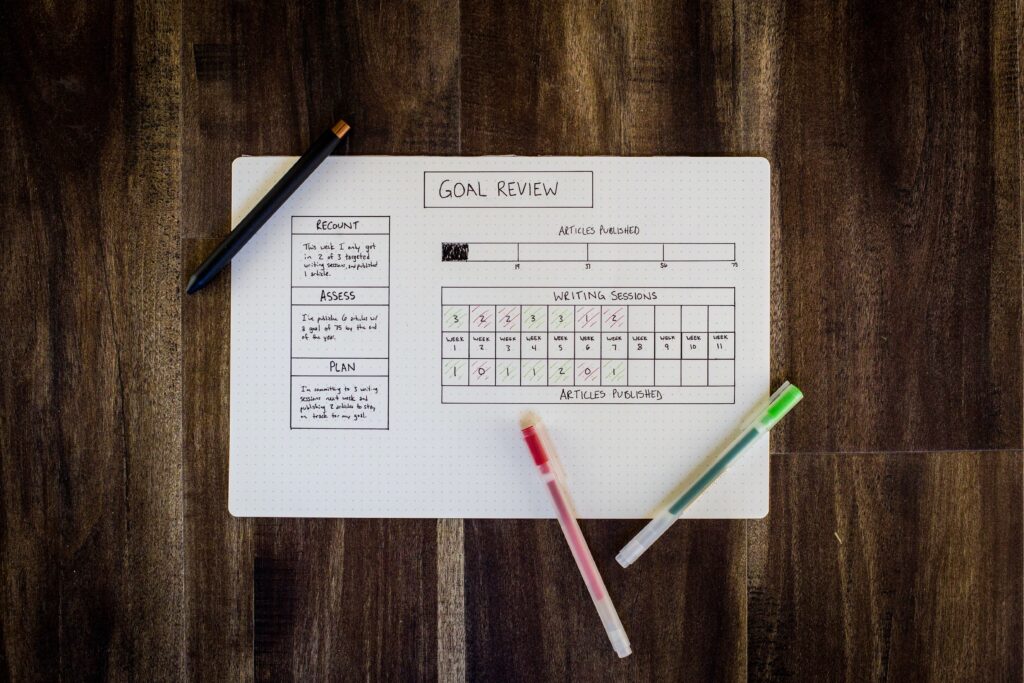
Learn a single new thing every day
See, your ultimate goal is not only achieving a PhD degree, but afterward, you also have to go for a job or something else. Your degree is not the only thing required in the future. So try to learn at least a single new thing every day.
For example, a single or two new phrases, an English word or a new language. Learn MS Office or Excel, Some tools, etc.
Do yoga and meditation
Now, this is an obvious routine not only for a PhD student but also for others. Do yoga and meditation, possibly early in the morning. Yoga will strengthen your soul and inner spirit while meditation helps you to keep calm and fight depression and stress.
Again one obvious routine for everyone. If you like or not, do exercise, cardio, and physical activity and strengthen yourself. See, to achieve some serious things like a PhD, one must have been physical and mentally strong.
Do hit the gym or exercise every single day at least for 5 days a week.
Before going to sleep, take a quick look at all of your day’s activity, and if required, take a backup of some data or work. Don’t take backup lightly, data is everything. If you lose it, you will regret it.
| Wakes up early | 7 am at least |
| Do yoga and meditation | 45 minutes |
| Take bath and fresh yourself | 1 hour |
| Take breakfast, and read some news fastly. Don’t waste time there. | 45 minutes |
| Plan your goals, read literature and prepare yourself for the day. | 1 to 2 hours (at home or in college) |
| Do research in lab | 3 |
| Evaluate your results | 1 |
| Hit the gym | 45 minutes |
| Take dinner | |
| Go through your goal book | |
| Read a book | |
| sleep | 7 hours |
When to write?
Writing is a serious business. You have to give so much time and can’t be managed in a daily routine. You have to read, understand, think and then write so it takes time. Plan to do research for 3 days and write for 3 days, on a weekly basis.
Again, manage things by yourself, if you are at the early stage, you can give more time to research. If your work is almost done, you can give yourself more days to write.
It’s not military training, first of all, keep in mind. This is just a time management plan. You don’t have to always follow this. Manage things by yourself. Remember, your ultimate goal is to achieve a PhD, managing your health, mental status, physical status and social commitments.
However, self-discipline is tough but important. So try to follow this routine at least for 6 months, regularly, if you wish or if you do not wish. Once it is in process, it becomes routine.
Our students always remain ahead of their friends and we train them to follow the routine. I hope this will help you. Be a part of our community, and subscribe to us.

Dr. Tushar Chauhan is a Scientist, Blogger and Scientific-writer. He has completed PhD in Genetics. Dr. Chauhan is a PhD coach and tutor.
Share this:

- Share on Facebook
- Share on Twitter
- Share on Pinterest
- Share on Linkedin
- Share via Email
About The Author

Dr Tushar Chauhan
Related posts.
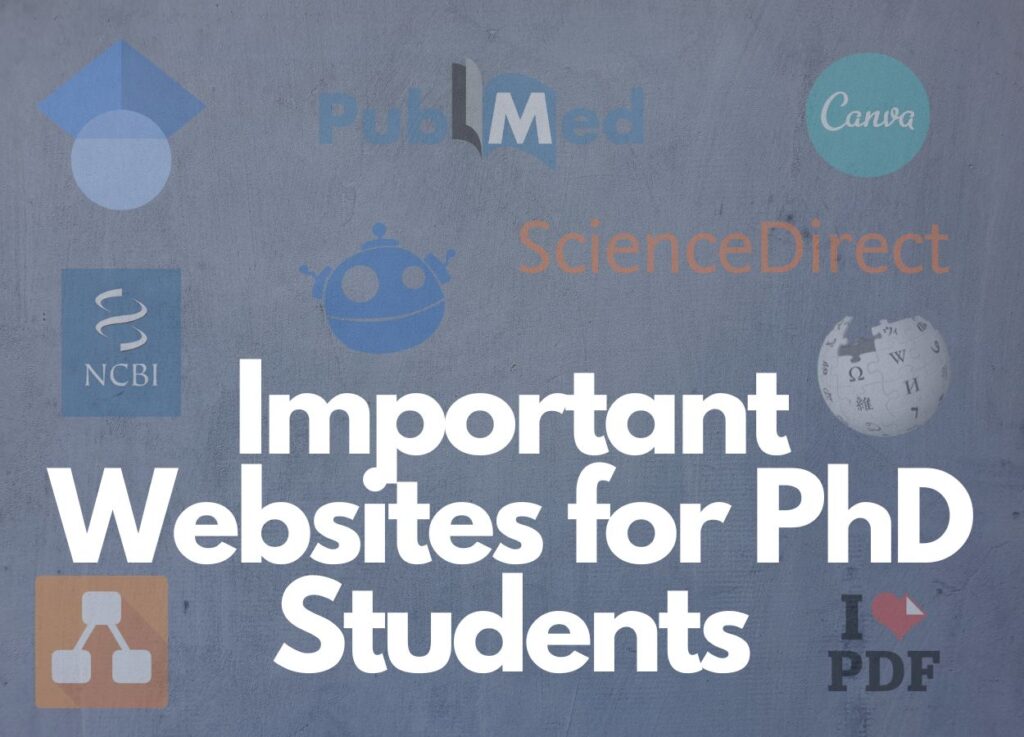
20 Amazing Websites and/or Resources For PhD Students
Leave a comment cancel reply.
Your email address will not be published. Required fields are marked *
Save my name, email, and website in this browser for the next time I comment.
Notify me of follow-up comments by email.
Notify me of new posts by email.
Thank you for visiting nature.com. You are using a browser version with limited support for CSS. To obtain the best experience, we recommend you use a more up to date browser (or turn off compatibility mode in Internet Explorer). In the meantime, to ensure continued support, we are displaying the site without styles and JavaScript.
- View all journals
- Explore content
- About the journal
- Publish with us
- Sign up for alerts
- CAREER FEATURE
- 25 June 2024
How researchers navigate a PhD later in life
- Elizabeth Landau 0
Elizabeth Landau is a science writer based in Washington DC.
You can also search for this author in PubMed Google Scholar
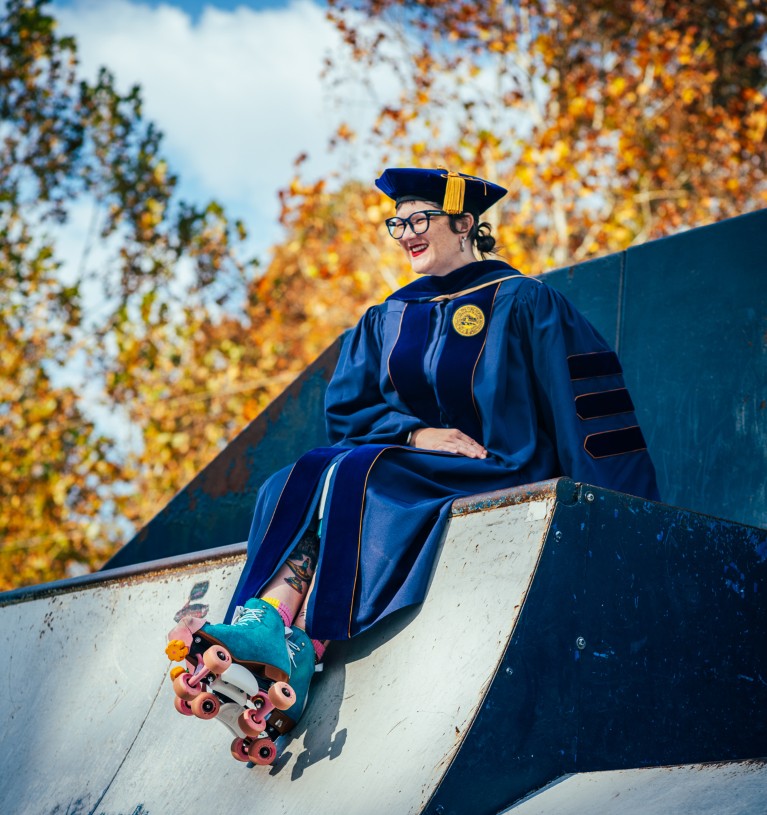
On a roll: Krista Bresock celebrates in her local skate park after graduating with a PhD in mathematics from West Virginia University, Morgantown, aged 41. Credit: Michael Germana
Krista Bresock sat crying in her professor’s office. She had to discuss one of five questions with her professor, in person. It was the concluding step of her final exam in functional analysis, the last course that she needed to complete for her PhD in mathematics. He’d shuffled a set of five cards, and she’d picked Card Number Two — corresponding to the one problem that she had not fully studied.
Unlike her fellow students studying intractable maths problems, Bresock was in her late thirties redoing coursework that she had failed years earlier. As a full-time maths teacher at West Virginia University (WVU) in Morgantown, she could find time to study only during nights and weekends.
“Problem Number Two was just collateral damage to being able to maintain this life of work full-time and be in grad school full-time,” Bresock remembers. She “fell to her knees” in relief when, a week later, she learnt she’d still got an A- in the course.
Many think of doctoral degrees as the domain of people in their twenties. Yet according to the US National Science Foundation, 17% of people who gained a PhD in science or engineering in the United States in 2022, the most recent year for which figures are available, were aged 36 or older . In some countries, including Colombia, Mexico, Portugal, South Korea, Iceland, Greece and Israel, the median age for entering a doctoral programme is 32 or higher, according to 2017 data from the OECD in Paris 1 .

Resources for mid-career scientists
A PhD requires a vast commitment of time and energy, often lasting five or more years. Stipends, when available, are often lower than salaries for other full-time jobs or professions. What’s more, students might have to move to another city, or even a different country, to attend their chosen course. Although difficult for any age group, those constraints can create different challenges for prospective students in their thirties, forties and beyond than for their younger colleagues.
At the same time, age often brings wisdom and self-confidence, qualities that can help older students to cope with a strenuous academic life. “The extra ten years that I was out doing other things gave me a lot of perspective and maturity to the way in which I think and live, and I think that was a big reason why I’ve succeeded,” says Peter Swanton, a 36-year-old graduate student working towards a doctoral degree in astrophysics at the Australian National University in Canberra.
Motivation is key
For Bresock, a doctoral degree represented “unfinished business”. She had struggled with alcohol and drug addiction from the age of 16, but hit a dangerous low point in early 2013, when she was a graduate student at WVU the first time round. She dropped out and checked herself into an in-patient programme, but still drank heavily afterwards. With the support of friends, family and Alcoholics Anonymous, she became sober in July 2013.
Bresock then taught maths at WVU, first as an adjunct and then as a full-time instructor, but she didn’t forget her incomplete doctorate. Finally, at the age of 37, she re-enrolled. “This little voice was like, ‘You have more to say. You have more to do. You have this thing sitting on the back burner that is kind of eating away at you,’” she says.
Despite her drive to finish the degree, motivating herself was “really hard sometimes”, she says, “because if I didn’t finish, no one would care: I would just not finish and still have this job and be fine.” One of her top tips for others looking to pursue a doctorate in mid-life is to fully understand and reflect on their motivations. If the goal is “more money”, that might not be enough, she says.
Before returning to his studies, Swanton held a variety of jobs, including hauling sugar cane, working in nightclub security and tutoring in secondary schools. He has this advice for anyone who’s considering a doctorate: make sure you’re “doing it because you love it”. For him, that has meant finding ways to combine telescopic investigations of cosmic objects, such as active galactic nuclei, with preserving folklore about the cosmos from the Gamilaraay, the people of his Aboriginal culture.
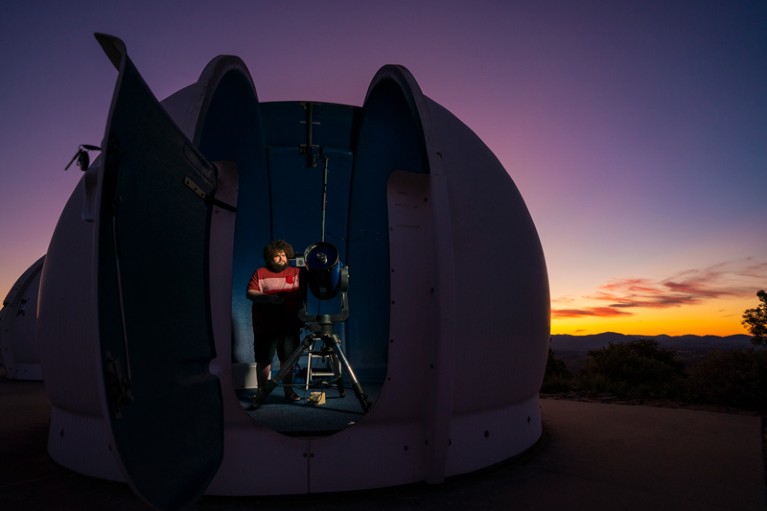
Peter Swanton, a 36-year-old graduate student in cultural astronomy at the Australian National University in Canberra, says that his previous work experience has given him the maturity to cope with the strains of academic life. Credit: Lannon Harley/ANU
Swanton’s heritage influences both his academic interests and the way in which he wants to communicate them. For example, the Gamilaraay language was originally a purely oral one. So, rather than just writing “a big block of text” for his dissertation, Swanton says that he would like to include elders and community members telling their own stories, and to bridge their knowledge with the Western understanding of the universe.
“My success has come down to finding something I am passionate about, and not concerning myself with future employability, which was the focus of my earlier attempts at academia and ultimately the reason why I didn’t succeed” at the time, he says.
Finding mentors
María Teresa Martínez Trujillo arrived at the Paris Institute of Political Studies to embark on a graduate programme in political science at the age of 32. Having spent her whole life up to that point in Mexico, she felt isolated from her classmates because of linguistic and cultural barriers, in addition to being the oldest student in her cohort. Martínez Trujillo had already had a career in the Mexican government, including working as an adviser to the secretary of the interior, yet she felt “less brave” than younger students, and had many more questions about reading materials.
She also felt ashamed about her lack of fluency in French. Over time, with the help of a therapist, she learnt to be less judgemental of herself and to overcome her impostor syndrome. Classmates helped her to proofread some of her assignments and she focused on improving her language skills.
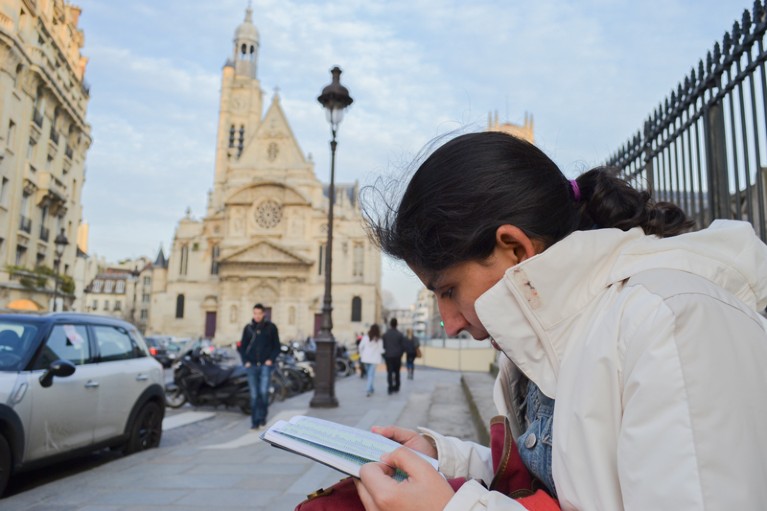
Cultural and linguistic barriers left María Teresa Martínez Trujillo feeling isolated from her peers when she arrived from Mexico, aged 32, to embark on a graduate programme at the Paris Institute of Political Studies. Credit: Hiram Romero
Martínez Trujillo’s advisers — Hélène Combes and Gilles Favarel-Garrigues — were key for her as she dived into reading and fieldwork on the relationship between drug trafficking and the business world in Morelia, Mexico, for her master’s project. “They let me go to the ‘forest’ and spend time and lose myself,” she says, adding that when she felt lost or stuck, her advisers helped her to find her way.
Time and money
Finances often pose a problem for graduate students who don’t already have savings and support, including those who have worked previously. Even with tuition covered, and a stipend to help towards living expenses, making ends meet can be challenging, especially for students who have other financial responsibilities, such as providing for family members or maintaining a home.
Martínez Trujillo received a stipend, but she spent almost all of it on rent and didn’t want to ask her family for money. She worked as a nanny, consulted for a Mexican think tank and spent summers working in Mexico on friends’ projects. “I’d never have free days,” she says.
Bresock wishes she could have spent more time away from both work and studies. “I did a terrible job of that. Make sure you make time for yourself. That dissertation will still be there, if you go take a walk, or if you go swim or whatever, for an hour out of your life.”
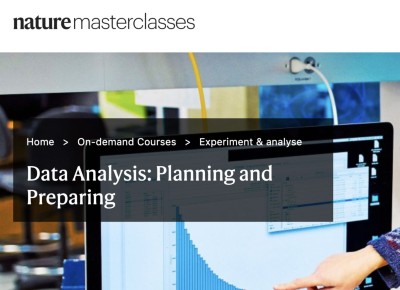
Training: Data Analysis: Planning and Preparing
Like Bresock, Marc Gentile kept a full-time job while doing his PhD in astrophysics at the Swiss Federal Institute of Technology in Lausanne in his mid-to-late-fortiess. He needed to earn enough to support both himself and his wife, and to address other financial responsibilities.
“The top advice would be establishing effective work and study habits right from the start,” he says. “In my case, time was the most precious resource, and I had to be very well organized to make the most of it.”
Gentile would work on his doctoral assignments from 5 a.m. to 6 a.m. each weekday, before leaving for his day job. He would then read articles while commuting by train, and tackle more PhD tasks or further reading in the evenings. “I was told that I was, on average, more productive and better organized than most other, younger students, because you develop such skills when you work professionally,” he said.
Family matters
When Wendy Bohon walked across the stage to receive her doctorate in geology, she was nearly 38 years old and pregnant with twins. She wound up at Arizona State University in Tempe after beginning her career as an actor, and then becoming fascinated with earthquakes after one shook her apartment in 1999.
For her dissertation, Bohon conducted fieldwork in India on two large fault systems, focusing on how fast they had been moving, their intersections and their frequency of earthquakes — as well as the growth of mountains around them — over the past 34 million years. Today, she heads the Seismic Hazards and Earthquake Engineering branch of the California Geological Survey in Sacramento.
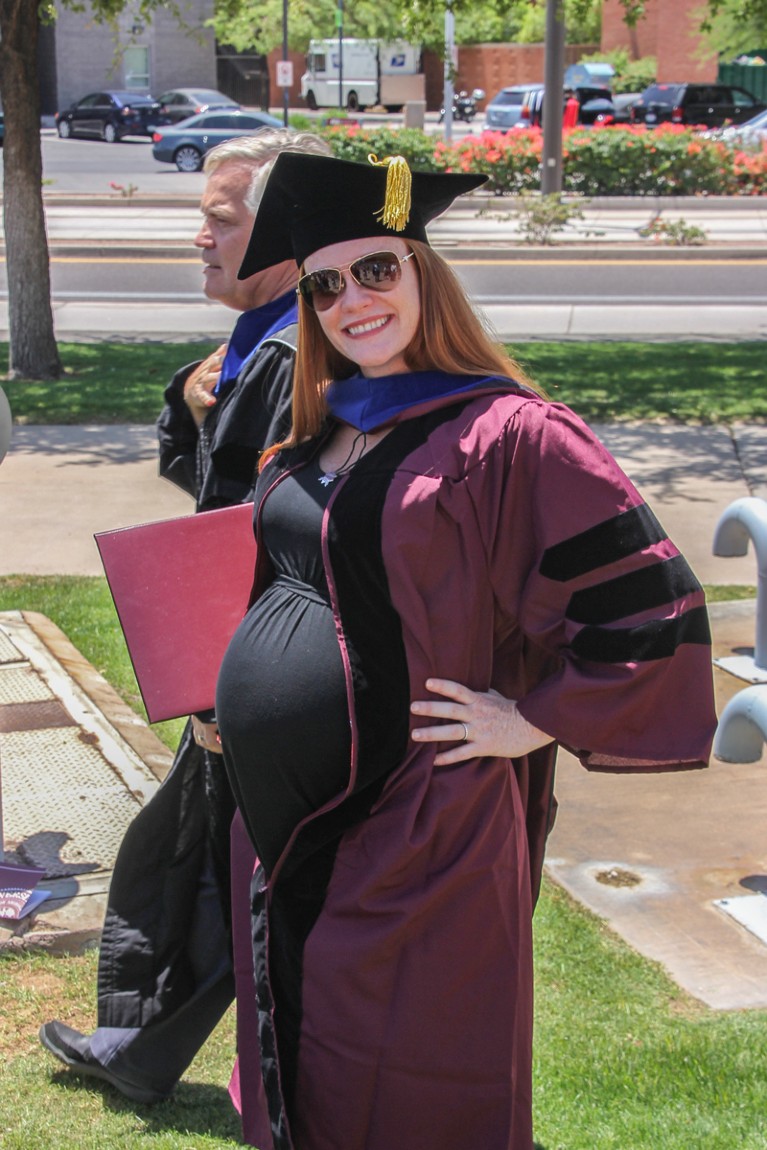
Wendy Bohon was nearly 38, and pregnant with twins, when she graduated from Arizona State University in Tempe with a PhD in geology. Credit: Linda Bohon
As a student, her desire to expand her family had put her in a different life stage from younger peers. She had met her husband, who already had a young daughter, while in her graduate programme. And whereas her classmates had wanted to avoid pregnancy, she had struggled to conceive. “That emotional disconnect and the difference in their reality and my reality — it was really tough,” she says. Ultimately, she and her husband chose to try the intensive process of in vitro fertilization, which Bohon mostly kept secret. At the same time, she was helping to co-parent her husband’s daughter, and the couple were given full custody of the girl when she was seven.
Bohon coped with parenting and finishing graduate school with the help of “a built-in village of people around who could step in to help us”. Other graduate students would play the card game UNO with the girl, or colour pictures with her. And Bohon’s mentor, along with the mentor’s husband, became the child’s godparents.
“In a lot of ways, it was easier to parent during my PhD, because my schedule was relatively flexible, so I could stay home with her when she was sick, or attend school functions,” Bohon says. What’s more, she adds, “having a kiddo that needed me helped me to set and keep healthier boundaries than I think I would have otherwise”.
Charlotte Olsen, a postdoctoral researcher in astrophysics at the New York City College of Technology, earned a PhD at the age of 42 and now investigates the factors that influence star formation and galaxy evolution. Olsen says that working on her doctorate presented challenges for her marriage. “I’m not gonna lie: grad school is really rough on a relationship,” she says — adding that, especially at the beginning, “it’s an incredibly stressful time”.
Among the responsibilities that older students might have is taking care of ageing parents. Olsen recalls that during her qualifying exams, she hadn’t heard from her mother, who was 76 years old at the time, for a while. She assumed that her mother wanted to give her space during that stressful time. Later, she found out that her mother’s appendix had ruptured, necessitating surgery and a stay in a hospital’s intensive-care unit.
Through it all, Olsen’s spouse was an invaluable source of emotional support. “Having somebody who is there with you along the way” helps a lot, she says.
What happens next?
Not everyone who gets a PhD stays in their field. Gentile, now 60, works as a data scientist for a Swiss television station. He had a postdoctoral research position for five years after graduation — but for several reasons, including financial ones, he could not find an academic job afterwards. “If I had really wanted to continue in astrophysics, then I would have had to move abroad; it’s difficult now,” he says.
Still, Gentile found the PhD experience rewarding and worthwhile. As well as acquiring problem-solving techniques, he learnt coding and data-science skills, such as machine learning and statistical methods. And he has used all of these in subsequent jobs, including his current one.
His graduate work also remains relevant. Some of the algorithms and software that he worked on during his PhD helped to inform the tools that scientists will use to analyse data from the European Space Agency’s Euclid observatory, which aims to explore dark energy and dark matter.
Bresock received a promotion at West Virginia University after earning her PhD in maths in December 2022, aged 41. Her dissertation examined how students understand the definite integral, a fundamental concept in calculus, when solving different kinds of problem.
Today, she has greater empathy for her own students because of her own struggles as a graduate student. Finishing her doctorate remains one of her most satisfying accomplishments, she says. “When people ask me what’s the biggest thing I’ve ever done in my life, it’s: get sober, and then, finish my PhD. That’s a close second.”
doi: https://doi.org/10.1038/d41586-024-02109-x
Organisation for Economic Co-operation and Development. Education at a Glance 2019: OECD Indicators (OECD, 2019).
Download references
Related Articles

- Research management

How to network with the brightest minds in science
Career Feature 26 JUN 24

What it means to be a successful male academic
Career Column 26 JUN 24

Is science’s dominant funding model broken?
Editorial 26 JUN 24

The strategy behind one of the most successful labs in the world
Comment 26 JUN 24

How I’m using AI tools to help universities maximize research impacts
World View 26 JUN 24
Full-Time Faculty Member in Molecular Agrobiology at Peking University
Faculty positions in molecular agrobiology, including plant (crop) molecular biology, crop genomics and agrobiotechnology and etc.
Beijing, China
School of Advanced Agricultural Sciences, Peking University
Research Postdoctoral Fellow - MD
Houston, Texas (US)
Baylor College of Medicine (BCM)
Assistant Professor (Tenure Track) of Biomolecular Engineering for Health
The Department of Biosystems Science and Engineering (D-BSSE) (www.bsse.ethz.ch) at ETH Zurich invites applications for the above-mentioned position
Zurich, Switzerland
Suzhou Institute of Systems Medicine Seeking High-level Talents
Full Professor, Associate Professor, Assistant Professor
Suzhou, Jiangsu, China
Suzhou Institute of Systems Medicine (ISM)
Faculty Positions in Westlake University
Founded in 2018, Westlake University is a new type of non-profit research-oriented university in Hangzhou, China, supported by public a...
Hangzhou, Zhejiang, China
Westlake University
Sign up for the Nature Briefing newsletter — what matters in science, free to your inbox daily.
Quick links
- Explore articles by subject
- Guide to authors
- Editorial policies
9 Writing Tips for PhD Students
Boost your writing skills as a PhD student with these 9 essential tips. From creating a schedule to seeking feedback, learn how to improve your academic writing.
Jun 12, 2024

Writing is crucial in a PhD journey. It's how doctoral students communicate research findings, contribute to their field, and demonstrate expertise. From research proposals to the final dissertation, writing plays a vital role in a PhD student's success. However, many PhD students face challenges when writing effectively and using data efficiently.
One main challenge present is the volume of writing required. Students must produce substantial, high-quality paperwork while juggling other responsibilities. Complex subject matter and strict academic conventions make writing daunting and time-consuming.
Another challenge is developing a distinct, persuasive writing style. Doctoral-level writing demands sophistication and clarity in simple language. Students must articulate complex ideas in simple language, engage with literature, and make original contributions. This is challenging, especially for non-native English speakers or those with limited academic writing experience.
Despite these challenges, strong writing skills are essential for PhD success and beyond. Effective academic writing also enables students to communicate findings, secure funding, publish, and establish expertise. To help navigate these challenges and improve writing skills, we've identified 9 key tips:
- Start writing early
- Create a writing schedule
- Break down writing tasks
- Read extensively in your field
- Seek feedback from others
- Edit and revise repeatedly
- Develop your own writing style
- Practice writing in different formats
- Take care of yourself
By learning and implementing these strategies, PhD students can overcome writing obstacles, hone skills, and increase success in doctoral programs and future careers. The present chapter and following sections will explore each tip in detail, providing practical advice and examples to help you become a more confident, productive writer.

1. Start writing early
One of the most important tips for PhD students is to start writing early in their doctoral journey. Many students make the mistake of waiting until they have completed all their research or until they feel fully prepared before they begin writing.
Starting to write early, even if it's just rough drafts or exploratory pieces, offers several benefits:
- It helps you clarify your thoughts and identify areas that need further research or development.
- It allows you to receive early feedback from your supervisor or peers, which can guide your research and writing process.
- It gives you ample time to revise and polish your work, ensuring that your final product is of the highest quality.
To start writing early, try the following strategies:
- Set aside dedicated writing time each day or week, even if it's just for 30 minutes.
- Begin with low-stakes writing tasks, such as brainstorming or freewriting, to overcome initial hesitation.
- Write short pieces, such as blog posts or conference abstracts, to build momentum and confidence.
- Share your early drafts with trusted colleagues or mentors for constructive feedback.
Remember, the goal of early writing is not perfection but rather progress. By starting early and writing regularly, we hope you'll develop a strong foundation for your PhD writing and set yourself up for success in the long run.
2. Create a writing schedule
Creating a consistent writing schedule is crucial for PhD students to make steady progress and complete their writing projects. A writing schedule helps you prioritize writing, allocate sufficient time, and establish a regular habit.
To create an effective writing schedule, consider these tips best advice:
- Some write best in the morning, others in the afternoon or evening
- Determine how much time you can dedicate to writing, considering other commitments
- Divide larger projects into manageable tasks that can be completed in a single session
- Treat scheduled writing time as non-negotiable
- Communicate your schedule to others and minimize distractions
- Adjust your schedule when necessary to accommodate unexpected demands or opportunities
Use tools and strategies to support your writing schedule:
- Use a calendar or planner to block out writing time and track progress
- Try the Pomodoro Technique: write in focused 25-minute intervals with short breaks
- Join a writing group or find an accountability partner to stay motivated
By creating and sticking to a consistent writing schedule, you'll begin to build a strong writing habit and make significant progress on your PhD writing projects over time.
Easily pronounces technical words in any field
3. Break down writing tasks
Breaking down large writing and research tasks into smaller, manageable chunks is essential for PhD students. When one page faced with a daunting project, like a dissertation or journal article, it's easy to feel overwhelmed by the scope of the work.
Tips for breaking down writing tasks:
- Include main sections, subsections, and key points
- Use the outline as a roadmap while writing
- Break each section into actionable tasks
- Example: Instead of "write literature review," use "read and summarize five key articles," "identify themes and gaps," and "draft introduction"
- Focus on completing the most critical tasks first
- Move on to less crucial ones later
- Assign realistic deadlines for each task
- Consider available time and task complexity
- Acknowledge progress and celebrate accomplishments
- Maintain motivation and build momentum
Benefits of breaking down writing tasks:
- Make the writing process more manageable
- Focus on one small task at a time
- Track progress and identify areas needing more resources
- Maintain motivation through small wins
Remember, writing a thesis is a process. By breaking it down into smaller steps, for example, you can make steady progress towards completing your PhD thesis writing projects.
4. Read extensively in your field

Reading extensively is crucial for PhD students to produce high-quality, well-informed writing. By staying current with the latest research, data, and scholarship, you ensure your thesis writing is grounded in up-to-date knowledge and contributes to academic conversations.
Strategies for effective reading:
- Block out time specifically for reading
- Treat this time as a priority and protect it from distractions
- Focus on the most important and relevant sources
- Use citation tracking and keyword searches to identify key articles and books
- Note main arguments, methodologies, and findings
- Use a consistent note-taking system to keep notes organized and accessible
- Actively engage with sources
- Look for patterns, themes, and gaps in the literature
- Consider how your research fits into the scholarly conversation
- Share reading with colleagues, mentors, or classmates
- Engage in discussions about key ideas and implications
- Deepen your understanding and generate new insights
Benefits of extensive reading:
- Develop a broad and deep understanding of your research area
- Identify key debates, methodologies, and findings
- Situate your research within the scholarly landscape
- Generate new ideas and research questions based on gaps and opportunities
Remember, reading is an ongoing learning process throughout your PhD journey. Make reading a regular habit and priority to ensure your writing is informed by current and relevant scholarship.
5. Seek feedback from others
Seeking feedback from others is essential for PhD students to improve writing quality, identify areas for improvement, and gain new perspectives.
Strategies for seeking and incorporating feedback:
- Share early drafts and ideas throughout the writing process
- Seek feedback from those with relevant expertise, such as supervisors, committee members, or scholars in your field
- Consider feedback from peers or writing groups for fresh perspectives
- Clarify what type of input you're looking for, whether it's on the overall argument and structure or specific sections
- Approach feedback with an open and receptive mindset
- Remember the goal is to improve your writing and strengthen your work
- Assess and incorporate feedback that aligns with your overall goals and vision
- Consider each suggestion carefully before making changes
Benefits of seeking and incorporating feedback:
- Identify strengths and weaknesses in your writing
- Gain new insights and perspectives to enrich your work
- Improve clarity, coherence, and persuasiveness
- Develop relationships and networks with other scholars
Remember, seeking feedback is a hallmark of good scholarship. By actively seeking and incorporating feedback, for example, you can take your writing to the next level and produce valuable contributions to your subject field.
6. Edit and revise repeatedly
Here's the edited version:
Editing and revising are critical for PhD students. No matter how carefully you plan and first draft your writing, there's always room for improvement. By editing and revising repeatedly, you ensure your writing is clear, concise, and effective in communicating your ideas.
Strategies for effective editing and revising:
- Step away from your writing for a day or two after completing a draft
- Approach your work with fresh eyes to identify areas for improvement
- Identify awkward or unclear phrases and areas where writing doesn't flow smoothly
- One round: focus on overall structure and argument
- Another round: focus on improving clarity and concision of sentences
- Utilize grammar and spell checkers, style guides , and citation manuals
- Catch errors and ensure adherence to academic conventions
- Use feedback to guide revisions and strengthen writing
Benefits of editing and revising repeatedly:
- Improve clarity and coherence
- Eliminate errors and inconsistencies
- Strengthen arguments and analysis
- Ensure polished and professional writing
Remember, editing and revising are ongoing processes. Build in time for multiple rounds of revision, approaching each round with a specific sense of focus and goal to take your writing from good to great.
7. Develop your writing style
Developing your unique writing style is important for becoming an effective and confident writer as a PhD student. While academic writing of course has conventions, structure and expectations, there's room for individuality and creativity in expressing your ideas.
Tips for developing your writing style:
- Note how authors structure arguments, use language and tone, and engage readers
- Try analogies, varying sentence lengths, or incorporating personal anecdotes
- See what feels natural and effective for you
- Reflect your unique perspective and personality
- Focus on expressing ideas in a way that feels authentic to you
- Aim for clarity and concision, regardless of individual style
- Use simple, direct language and avoid jargon or complex sentence structures
- Developing your writing style takes time and practice
- The more you write, the more you'll find your unique voice and style
Benefits of developing your writing style:
- Make your writing engaging and memorable
- Communicate ideas more effectively
- Stand out from other scholars in your field
- Feel more confident and authentic in your writing
Remember, developing your writing style is an ongoing process. It's okay to experiment and make mistakes. By staying true to your voice and perspective while being open to feedback and growth, you can cultivate a unique writing style.
8. Practice writing in different formats

As a PhD student, you'll write in various formats, from abstracts to dissertation chapters. Practicing these formats develops versatility and prepares you for diverse writing tasks throughout the university and the rest of your career.
Tips for practicing different formats:
- Read examples and note key features and requirements
- Write a conference abstract or book review before a full journal article
- Submit proposals for conferences or workshops
- Participate in writing groups or collaborations
- Use feedback to identify areas for improvement
- Note what you learned and found challenging
- Set goals for future tasks and track your growth
Benefits of practicing different formats:
- Develop versatility and adaptability as a writer
- Prepare for diverse writing tasks throughout your career
- Improve your ability to communicate ideas to different audiences and contexts
- Increase your confidence and competence
Becoming skilled in multiple formats takes time and practice. Don't be discouraged if early attempts feel challenging. With persistence and a growth mindset, you can develop the skills and confidence to tackle any writing task.
9.Take care of yourself
Taking care of yourself is crucial for PhD students throughout the paper writing process. Writing a paper can be mentally and emotionally demanding, leading to stress and burnout if you don't prioritize your well-being.
Strategies for self-care:
- Be realistic about what you can accomplish
- Remember that writing is a process with setbacks and challenges
- Take regular breaks during writing sessions
- Prioritize activities that help you recharge, like exercise or hobbies
- Reach out to your supervisor, peers, or mental health professionals
- Acknowledge and celebrate your writing successes, no matter how small
- Recognize your progress to stay motivated
- Prioritize relationships, health, and other aspects of life alongside writing
Benefits of self-care:
- Maintain motivation and enthusiasm
- Prevent burnout and emotional exhaustion
- Produce higher-quality writing with a clear mind
- Model good self-care practices for others
Taking care of yourself is a necessity for long-term success and your complete well-being as a writer and scholar. Prioritize your needs and seek support to thrive personally and professionally during a specific time in your PhD journey.
Developing strong writing skills is essential for success in a PhD program and beyond.
Follow these nine key tips to overcome academic writing challenges and become a confident, productive writer.
Start writing early to avoid the blank page and maintain momentum. Create a detailed outline and schedule to break down tasks and stay on track. Read extensively to ensure enough research supports your ideas and arguments.
Seek feedback from others at every stage to identify areas for improvement and gain new perspectives. Edit and revise repeatedly, focusing on different aspects in each round.
Develop your writing style by experimenting with techniques, finding your authentic voice, and using active voice. Practice writing in various formats to prepare for expected tasks throughout your career.
Take care of yourself during the writing process. Set realistic goals, take breaks, and seek support when stuck. Remember, writing is a journey. Every word brings you closer to your goal.
Follow these tips and maintain a growth mindset to navigate academic writing challenges and produce a compelling, well-researched thesis that contributes to your field. Don't let the blank page intimidate you – start writing today and watch your ideas come to life!
Writing Skills
PhD Students
Recent articles

9 Free AI Tools for Research
Derek Pankaew
Jun 26, 2024
Academic research
Research papers
AI-powered research
Free AI tools

5 Best Reading Programs for Dyslexia: A Parent's Guide
Glice Martineau
Orton-Gillingham
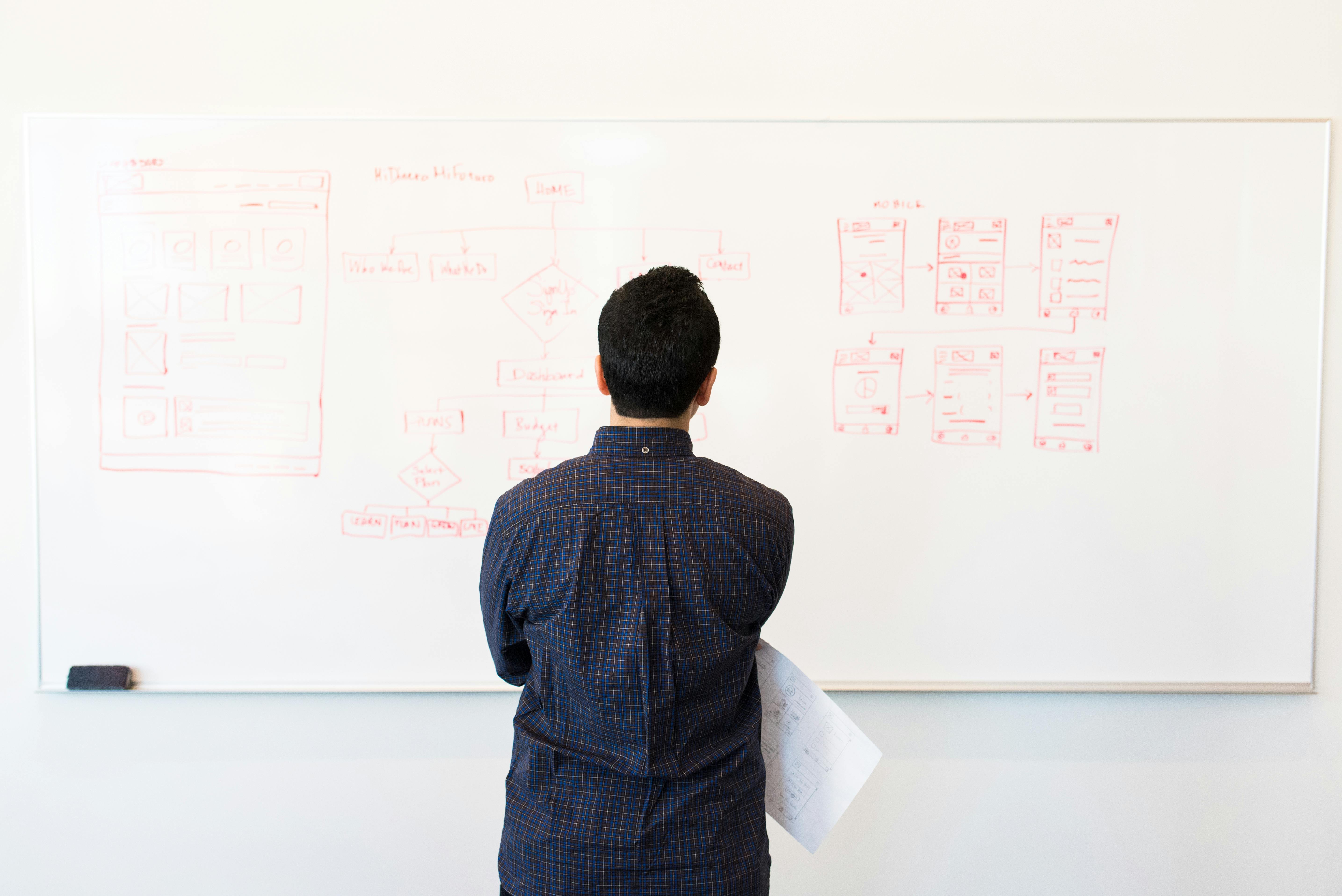
How to Choose and Develop a Research Topic: Ideas and Examples
Kate Windsor
Thesis Development
Literature Review
Academic Writing
Research Methodology
Research Idea Generation
Research Topic Selection

Quick Guide to Getting a College Financial Aid
Jun 27, 2024
Student Loans
College Funding
Financial Aid
Former student heads to prison for life for killing University of Arizona professor

PHOENIX − A former University of Arizona graduate student was sentenced to life in prison without the possibility of parole for the murder of a professor on campus in 2022 .
Murad Dervish , 48, was found guilty of first-degree murder after he shot Thomas Meixner, head of the university's Department of Hydrology and Atmospheric Sciences, on Oct. 5, 2022. The sentence he received Monday will put him behind bars for the rest of his natural life, plus 14 years, with no parole.
Last month, a jury also found him guilty of a slew of other charges , including one count of aggravated assault with a deadly weapon, one count of burglary and three counts of endangerment. Dervish was a graduate student who was expelled and prohibited from being on campus.
He was accused of threatening Meixner and other faculty and university staff for more than a year.
Dervish's attorney wanted his client to be found guilty but insane, telling the jury Dervish did not know right from wrong and was psychotic, paranoid and delusional. The prosecutor from the Pima County Attorney’s Office argued the murder was premeditated and showed threatening emails and evidence that Dervish planned to kill Meixner in the weeks and months before the shooting.
Family, university requested life without parole
During the sentencing, Meisner’s sisters, son and wife spoke about their experience, and all requested Dervish be sentenced to life in prison without a chance of parole. They spoke about how kind and intelligent Meixner was and how he was generous with his community.
One of his sons, Sean Meixner, spoke before the sentencing about his grief, sadness and hatred of Dervish, stating his life would never be the same without his father. He spoke about feeling as though he is waiting to die so he can hold his father again and be free of the "agony living in his absence."
“How could a man who devoted his life to God and others be taken from this life in the worst way possible, in pain and fear? Where was God in that?” he said.
Celina Ramirez, representing the university, said Meixner was a passionate, world-renowned scholar and kind mentor whose leadership resulted in the hydrology department’s high ranking.
She said the shooting has hurt the mental health of students and university staff, noting the challenge it is for many students and employees to return to campus.
“No legal punishment could ever be enough to fully atone for the intense grief and pain the defendant has inflicted upon Dr. Meixner's family, friends, colleagues, students, and the university community,” Ramirez said.
But Meixner’s sisters specifically criticized the university, as well as UA police and the person who sold Dervish the gun he used to kill Meixner.
“The University of Arizona failed my brother,” said Margaret Meixner, one of his sisters. "He loved and trusted the U of A, but that trust was misplaced."
She called the university’s police department incompetent and said the police and the university had her “brother’s blood on their hands.”
University police, according to a letter by university president Robert Robbins , went to the county attorney’s office twice to seek charges against Dervish. The county attorney declined to press charges because of a lack of evidence.
In the months after the shooting, a faculty report found the university knew about the threats and failed to implement an effective risk management system to keep people on campus safe. Another report , compiled by a consultant hired by the university, offered 33 recommendations for improving security.
Since then, the university has implemented numerous safety changes and updated safety communications. Meixner's family settled a lawsuit against the university for $2.5 million for failing to protect Meixner.
Dervish apologizes to Meixner's family but says trial was unfair
After Meixner’s family members spoke, Dervish addressed the judge over the objection of his attorney.
Dervish said he was pushed to speak because of the repeated mentions of him being a monster. Dervish spoke about how he had been enamored by the weather ever since he was a child and was so happy when he got into the University of Arizona.
“I felt I was in this new and magical place. I was going to study what I always wanted to truly study,” he said, adding that he fought addiction, homelessness and rejection by people in his life.
He said his heart broke for “what happened.”
“For them to lose him is just horrible, to his wife I don’t even know what to say,” Dervish said. “Just saying the word 'sorry' sounds dumb and ugly. It doesn’t fit … with what happened.”
He also said “significant errors” were made during the trial, primarily by his attorneys. He noted the trial was not granted a change of venue and claimed the trial was unfair.
“I have yet to have a fair and impartial trial,” he said.
Pima County Superior Court Judge Howard Fell told him that he would have the opportunity for others to review whether the trial was fair.
“Right now, you are going to prison for the rest of your life,” Fell said.
Dervish threatened, harassed staff before the shooting
The prosecutor said that on the day of the shooting, Dervish entered the Harshbarger Building at UA shortly before 2 p.m. He chased Meixner down a hallway in the building and into a classroom. Dervish emptied his magazine, shooting Meixner 11 times.
Dervish then fled the building, police said. According to the complaint, police found Dervish driving on Highway 85 toward Mexico 30 miles south of Gila Bend three hours later.
Documents say Dervish refused to stop, leading police on a chase for 2 to 3 miles until his car was stopped.
Dervish's behavior was well-known among members of the department and law enforcement before the shooting occurred. In the year before the shooting, Dervish reportedly harassed and threatened staff members working at Harshbarger Building.
Some of the threats were antisemitic: Dervish wished death to all Jews and accused Meixner of orchestrating a Jewish-led conspiracy against him, despite Meixner being raised Roman Catholic.
Dervish's attorney said his anger toward Meixner stemmed from a bad grade on a test.
Before his expulsion from the university, Dervish had been prohibited from stepping foot on university property. Pictures of Dervish were distributed throughout the department with instructions on how and when to call the police.
Additionally, entry passwords for rooms to which Dervish had access were changed.
After the judge handed down the sentence, the Pima County Attorney's Office released a statement saying County Attorney Laura Conover would bring red flag legislation back to the Legislature this year, following the wishes of Meixner's family.
“In honor of the family’s expressed wishes, and under her desire for a safer community, County Attorney Conover will bring her red flag legislation back to the legislature again next year, and for as long as it takes, to bring home common-sense gun safety reforms for a safer and healthier community," her office said in a statement.
Those laws, which have the backing of Democratic Attorney General Kris Mayes, allow courts to order the seizure of firearms from people who might be a threat to themselves or others.
Former Gov. Doug Ducey proposed a similar law, under a different name, in 2018 after 17 students and staff were killed in a shooting at Marjory Stoneman Douglas High School in Parkland, Florida. But the Republican's bill was rejected by the GOP-majority Legislature.
Reach the reporter at [email protected] . The Republic’s coverage of southern Arizona is funded, in part, with a grant from Report for America. Support Arizona news coverage with a tax-deductible donation at supportjournalism.azcentral.com.
UH by the Numbers
Uh by the numbers.
- Graduate Student Dashboards
Annual SCH Completion
Graduation rates, time to degree.
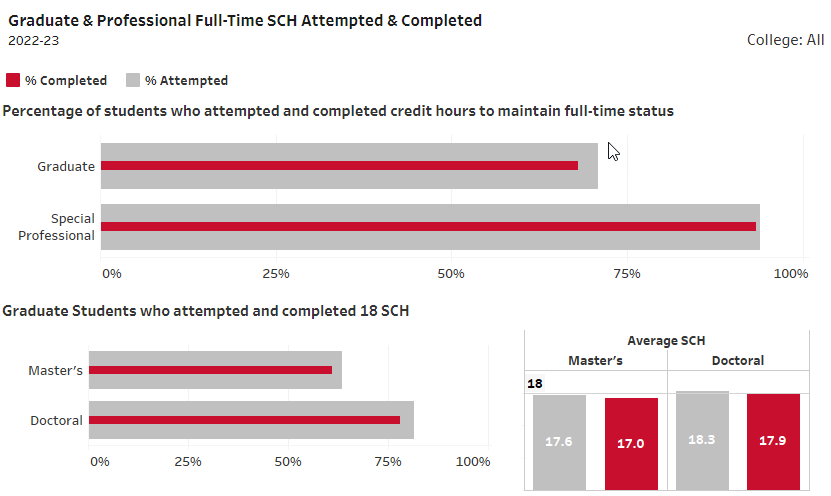
Annual attempted and completed semester credit hours percentage and average.
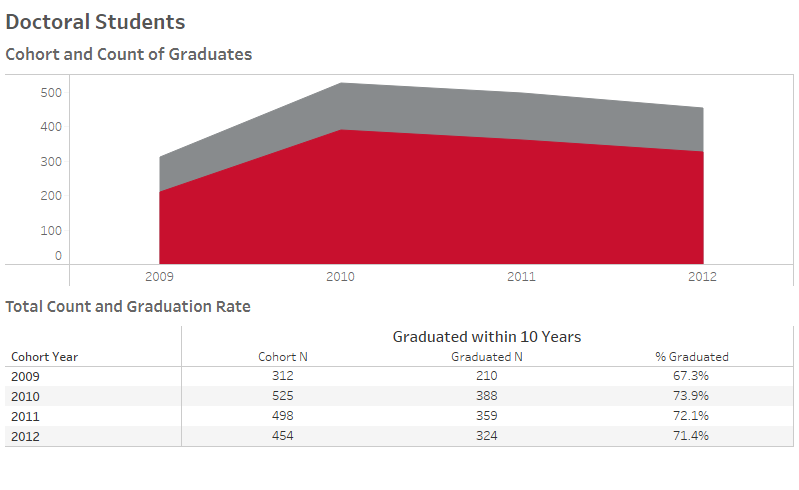
Masters students' 5-year and doctoral/professional students' 10-year graduation rates.
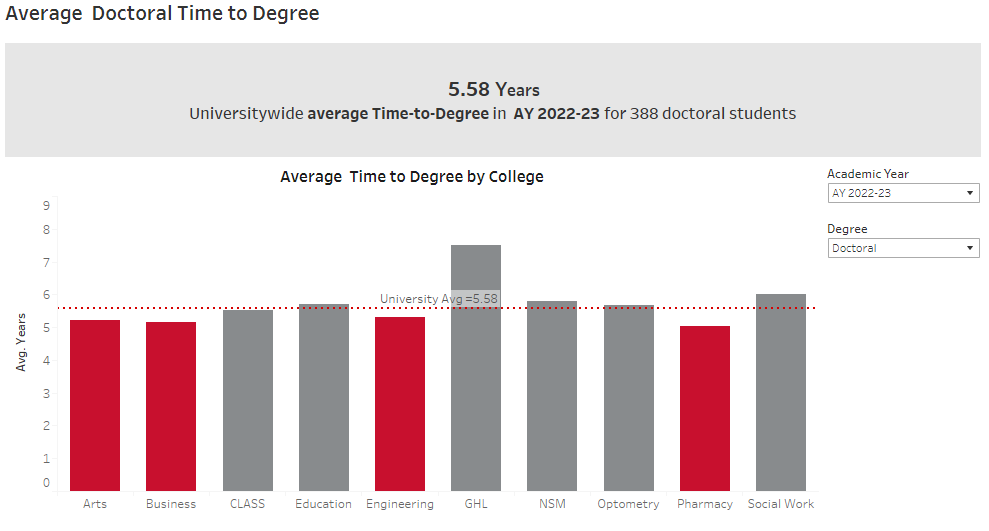
Average number of years it takes graduate/professional students to earn their degrees.

UC Davis Graduate Studies

Your Guide to a Stress Free and Unforgettable Commencement Day
- by Graduate Studies
- May 30, 2024
The big day has finally arrived! After years of tireless work, it’s time to savor every second of this incredible celebration. We’ve got you covered with our top tips to ensure your graduation day runs smoothly, so you can focus on basking in the glory of your hard-earned achievement.
Attend the Correct Ceremony
Double-check the details for the ceremony corresponding to your degree type and make sure you’re at the right place at the right time. You wouldn’t want to miss your moment on stage!
- Master’s Students: Line-up at Hutchison Field South by 9:00 a.m. in your academic regalia.
- MFA and Doctoral Students: Line-up at Hutchison Field South by 2:00 p.m. in your academic regalia. Don’t forget to bring your hood to the Commencement ceremony!
Plan Ahead for Parking
Find out where you’re going to park beforehand. Plan your route to the venue and allow plenty of time to get there. Commencement is a popular event, so roads may be busier than usual.
Parking is complimentary with registration for all graduates and Commencement guests in designated lots. For instructions on how to register for complimentary parking watch this video or follow the instructions posted on the Commencement website . The coupon voucher code for Graduate Studies ceremonies has been distributed directly to all registered students only. If you have questions, contact the Commencement Coordinator .
|
|
Need mobility assistance?
Parking and Transportation will offer complimentary Mobility Assistance Shuttle service between the Pavilion Parking Structure and the Southeast entrance of the University Credit Union Center preceding and following each ceremony. Those who wish to utilize this service should park in the Pavilion Parking Structure , and proceed to the shuttle stop located just outside the structure’s west entrance, on the North Dairy Road bike path. Visit the TAPS Commencement website for details.

Information for Guests
All guests will require tickets to attend the ceremony. Seating for guests is on the upper levels of the University Credit Union Center, through the Southeast Concourse and the Southwest Concourse. Seating is available on a first-come, first-served basis. Guests should make note to attend the correct ceremony and plan to arrive early to be sure they have time to park and find their seats. Please note, only graduates are permitted in the line-up area. Guests are not allowed on the arena floor at any time, even after the ceremony ends.
Ceremony Details
Please expect graduates to remain through the full ceremony, and guests should plan to remain in their seats as well as a show of respect for the accomplishments of all the graduates attending.
- Master’s Ceremony: Doors open at 9:00 a.m., the graduation ceremony starts at 10:00 a.m.
- MFA and Doctoral Ceremony: Doors open at 2:00 p.m., the graduation ceremony starts at 3:00 p.m.
Visit the Commencement Information for Guests and the Frequently Asked Questions page for additional information.
Photos and Video
Professional photographers will be at the ceremony to capture the moment you receive your diploma. Your free digital proof will be e-mailed within 5-7 days following commencement.
Family members and friends should take photographs of candidates either before or after commencement. Photos taken by family or friends will be permitted from their seats or from the designated photo areas in the stands above the arena floor. Tripods are NOT allowed into the University Credit Union Center.
Remember that It’s a Shared Moment
Please commit to staying the entire ceremony, even if it runs longer than expected, out of respect for the accomplishments of the remaining graduates. Every graduate deserves their moment of public recognition.
Regalia Returns for Students
Gowns may be returned after the ceremonies at the Herff Jones on-site location at Hutchison Field. For more information, visit the Cap and Gown Rentals website .
Stay Connected: Join the Alumni Network
You’re not just graduating – you’re becoming a lifelong member of our esteemed graduate alumni community! Join the Graduate Alumni Network to connect with fellow grads, tap into exclusive resources and stay updated on the latest university news. It’s the perfect way to keep the connection alive.
Congratulations class of 2024!
We can’t wait to honor your achievements and celebrate the amazing things still to come. Here’s to you!
Get more information about the Spring 2024 Commencement . If you have questions, contact the Commencement Coordinator .
- Faculty & Staff
- Graduate Students
- Parents & Families
- Prospective Students
- Undergraduate Students
- BIPOC Students
- First Generation
- International Students
- LGBTQ+ Students
- Students with Disabilities
- Transfer Students
- Undocumented Students
- Agriculture, Food and Natural Resources
- Architecture & Construction
- Arts, Media & Communications
- Business Management & Administration
- Education & Training
- Government & Public Administration
- Health Science
- Hospitality & Tourism
- Human Services
- Information Technology
- Law, Public Safety & Policy
- Manufacturing
- Operations & Logistics
- Sustainability
- Academic Coaching
- Academic Planning
- Drop-In Advising
- Reinstatement
- Career Coaching
- Build Your Network / Find a Mentor
- Create a Resume / Cover Letter
- Explore Your Interests / Self Assessment
- Mastering the CV
- Negotiate an Offer
- Prepare for an Interview
- Search for a Job
- Find an Internship
- Gain Student Employment
- WSU Career Expos
- Share This: Share Three Fast Job Tips for WSU Graduate Students on Facebook Share Three Fast Job Tips for WSU Graduate Students on LinkedIn Share Three Fast Job Tips for WSU Graduate Students on X

Hey graduates! Summer is here, but are you looking for your next on-campus opportunity or maybe even off-campus part-time work? Are you ready to find a full-time post-graduate position after completing your thesis or Ph.D? Here are three tips to get you started:
- Utilize the Academic Success and Career Center (ASCC ) program staff to get help and feedback regarding updating your Handshake profile, Cover letters, LinkedIn profile, CV, Resume, or any step of the job search. The ASCC can meet with students in person and virtually through Zoom throughout most of the Spring, Fall, and summer semesters . To set up a career coaching appointment, click here.
- Once you have updated your profile and materials, jump into Handshake to seek key opportunities. Handshake is WSU’s primary job and internship platform, hosting career fairs and professional development events, tens of thousands of employers, and nearly a million job opportunities in all industries. As a WSU graduate, or Ph.D. student, you have automatic access. To learn more about Handshake, click here .
- Take advantage of the additional resources by the WSU Graduate School and the Graduate Student Professional Association. These include access to additional job databases, on-demand professional development webinars, and graduate-specific institutional memberships. These are listed under “Additional Career Development Resources when you click here.


IMAGES
VIDEO
COMMENTS
20. Enjoy your PhD! It can be tough, and there will be days when you wish you had a 'normal' job, but PhDs are full of wonderful experiences and give you the opportunity to work on something ...
Getting a PhD or professional doctorate takes considerable time and effort. Students shouldn't try to get this degree unless they have a clear reason to need it. Confidence. There's a lot of rejection in graduate school, so maintaining confidence isn't always easy. But if you don't believe in yourself, it'll be hard to convince others.
PhD study tip #1: Write early and write often. PhD study tip #2: Read lots of papers. PhD study tip #3: Read other things. PhD study tip #4: Work in short sprints. PhD study tip #5: Focus on small signs of progress. PhD study tip #6: Don't cut corners. 6 Essential Study Tips for the PhD Student main image. Discover how to find and fund a PhD.
Top Tips for First Year PhD Students: This guide from the Society for Personality and Social Psychology is a goldmine for PhD students at any stage of their studies. Hear from experts and real students about how to manage time, build a social network, and generally thrive in your program.
We hope these 10 tips will help you get started. 1. Be true to yourself: First and foremost, consider your goals. Many students are initially interested in pursuing a Ph.D. because they want to become a professor. What you may not know is that landing a tenure-track faculty job is fiercely competitive.
Doing a PhD is often experienced as very stressful: many PhD students are perfectionists, and a PhD requires a lot of self-responsibility.Consequently, PhD work tends to feel very personal, and criticism can sting. First-year PhD students can deal with 'failures' more constructively by realizing that failures are an inevitable part of academic work, and by adopting a more welcoming ...
These tips will help you survive—and even thrive—in graduate school. Getting into Grad School: 5 Steps to Admission . This guide helps you research, plan, and stay organized throughout the admission process, increasing your odds of getting accepted into your top-choice program. ... But with the right resources and support, PhD students can ...
3. Work Smart and Learn to Take Breaks. Working in unison with the previous point about the number of hours you put in per week, a top tip for new PhD students is to learn to work smart and take breaks where necessary. Repeat after me: don't waste time being unproductive.
Here are some tips to help PhD students put their career on the fast track. Set clear goals and plan well: Before starting your PhD program, take some time to reflect on your career aspirations and what you hope to achieve with your degree. Once you have a clear idea of your goals, create a plan to achieve them - include both short-term and ...
Some tips for PhD students. Doing a PhD should be fun and rewarding, because you can spend all your working time discovering things and pursuing ideas — and getting paid for it, without any ...
PhD student advice for first year. At the beginning of my PhD it was a bit difficult to know what to do and where to get started. Along the way I have figure...
A PhD, meanwhile, follows a more widely known and traditional route and requires students, often referred to as "candidates", to produce their own work and research on a new area or topic to a high academic standard. PhD requirements vary significantly among countries and institutions.
Tara Brabazon shares her 10-step regime for steering emotionally drained postgraduate students through the final stages of their thesis. Choosing a PhD subject. A well-chosen doctoral thesis will have a focus that can be explored in the appropriate time and built on in the future. How to get ahead with a PhD.
TIP #2 Get your academic skills in shape. Top sportsmen need strong muscles to perform their chosen sport at the highest level, and PhD students need a strong brain for their studies. You can't start a PhD without sending your brain to the gym first and getting it into shape! Reading books about your academic subject is like lifting weights ...
15 Tips on Surviving Your PhD Program. 15 Tips and Advice on Making it Through a PhD. It can be extremely challenging to complete a PhD program while maintaining physical and emotional health. The Chronicle of Higher Education reports that 50 percent of all doctoral students drop out of graduate school without completing their degree. Some ...
One great thing about working in academia is that (ideally, most of the time) you get to be your own boss. On the other hand… you have to be your own boss. Unless you have a micro-managing ...
PhD-specific tools, like the CQOCE diagram to conceptualize your PhD, the NABC method to structure your research presentations, or the process I use to write scientific papers or make big career decisions. Supervision tips and advice, about giving feedback on student papers, or supporting a sense of progress in your doctoral students.
Here, academics offer their insight on each step towards producing an original work of scholarship. Starting with choosing a supervisor and establishing healthy habits, the advice goes on to cover how to structure a PhD dissertation, establish a writing routine, write an abstract, prepare for a viva and beat procrastination when motivation flags.
9. Be mindful. I want you to imagine you're holding a small red pillow. If I were to ask you to pick a pen up off the floor without dropping the pillow, you'd be able to do it. Sure, it'd be a bit cumbersome, but you'd manage. Now imagine that I added one blue pillow on top of your red pillow.
And, so, here's some general tips for a PhD student and for ECRs: My 101 Tips for PhD Students and ECRs. Well, here are a few tips for PhD students and ECR (Early Career Researchers):
Here is the standard daily routine process we advise our students to follow. This work, and will work for you. Stay tuned with this content, it will certainly change your PhD journey. A Daily Routine for PhD students: The 7+8= 6 formula. Your daily planner. Parkinson's law. Balance reading, writing and research.
After finishing my PhD in 2007 I completed 2 postdoc contracts before becoming starting coaching PhD students full-time in late 2010. In 2015 I published the book https://amzn.to/32F4NeW
Many think of doctoral degrees as the domain of people in their twenties. Yet according to the US National Science Foundation, 17% of people who gained a PhD in science or engineering in the ...
9 Writing Tips for PhD Students. Writing is crucial in a PhD journey. It's how doctoral students communicate research findings, contribute to their field, and demonstrate expertise. From research proposals to the final dissertation, writing plays a vital role in a PhD student's success. However, many PhD students face challenges when writing ...
2023-24 NRT cohort members. Photo by Sarah Holland. Since the program began in 2019 with the support of the National Science Foundation (NSF), the NRT Program has bought together graduate students from engineering, data science, and social science for one-year fellowships. Students work in multidisciplinary teams of other fellows and community partners to define a problem within the community ...
1:26. PHOENIX − A former University of Arizona graduate student was sentenced to life in prison without the possibility of parole for the murder of a professor on campus in 2022. Murad Dervish ...
Average number of years it takes graduate/professional students to earn their degrees. View Data. University of Houston Houston, Texas 77204 (713) 743-2255. A-Z Index; Academic Calendar; Campus Carry Policy; Campus Map; Career Opportunities; Directory; Emergency Information; Get Help; Human Resources; Library;
Tips for New PhD Students 1. Build Relationships PhD Students spend a lot of time learning in the classroom, debating ideas, and sharing knowledge. Therefore, building relationships with your professors and peers is an essential aspect of your PhD program. Building relationships with support staff and other
We've got you covered with our top tips to ensure your graduation day runs smoothly, so you can focus on basking in the glory of your hard-earned achievement. ... Graduate Student Advisor to the Dean of Graduate Studies and Chancellor; ... Master's Students: Line-up at Hutchison Field South by 9:00 a.m. in your academic regalia.
Share Three Fast Job Tips for WSU Graduate Students on Facebook Share Three Fast Job Tips for WSU Graduate Students on LinkedIn Share Three Fast Job Tips for WSU Graduate Students on X. Sidebar. Contact & Location. Phone (509) 335-6000. Email. [email protected]. Address. Lighty Student Services Rooms 160 - 190 1815 NE Wilson Rd